It is our pleasure to welcome Robin Maxwell, author of The Gods of Atlantos Saga, a five-volume fictional tale of epic proportions. In her binge-worthy Saga, Robin reimagines our origin story. Basing her premise on Plato’s Atlantis myth and lost civilisation theory, Robin retells the story of our beginnings —a story long buried by the sands of time and the human ego that refuses to acknowledge what came before. An advanced civilisation was destroyed in an ancient cataclysm, memories of which live on in mythology that remembers them as gods —except they weren’t really gods at all. Robin’s Saga shines a light on the lost story of this advanced civilisation in intimate and exhilarating detail. In her article here, Robin explores the decades-long journey she has been on to write her Gods of Atlantos Saga and the people and places that influenced and inspired her along the way.
Robin is offering some FREE eBOOK promotions and multiple raffles for the FULL SET of 5 PAPERBACKS, as well as the AUDIBLE VERSION of VOLUME I, Poseidon in Love, both for the U.S. and the U.K. More details on this are at the end of the article.
Part II of Robin’s Amazon Promotion has started —Buy Volume I of the Kindle GODS OF Atlantos Saga—POSEIDON IN LOVE for $5.99 and get Volumes II – V for FREE! Her Promotion ends Sept 23rd.
Interact with Robin on our AoM Forum here.
“Robin Maxwell’s Atlantos is a tremendous, exhilarating, unputdownable SURPRISE…”
-Graham Hancock
In a series of weird and wonderful synchronicities, Graham Hancock’s presence in my life and his featuring my latest series of novels on his website this month borders on the supernatural. Oddly, the entire sweep of my creative life – particularly writing this book series – is realizing that it’s one of the “main assignments” of my existence in this lifetime. I don’t exactly know who was giving out these assignments – Cosmic Publishers, Inc.? Beings from a parallel universe? The Great Mother Goddess? And why exactly was I compelled to accept the role of storyteller, adapting Plato’s most important, if much derided and widely ignored, tale of the origins, rise, corruption and annihilation of the first advanced civilization on Earth by Greek Gods and their offspring… who were not actually gods at all?
Over the decades, it became clear that something has always been behind me, pushing me, shoving me to explore phenomena, go places, meet people, reveal mysteries, and above all to persevere – against all odds – to bring this project to fruition. Writing it was somehow “important.” My life’s work. My magnum opus. The story I needed to tell before I died. Selling millions of copies was not going to be the point. Researching it and writing, then getting it out there in front of readers’ – and perhaps viewers’ – eyes was the most crucial thing about it. But every time such ideas passed through my consciousness I became privately embarrassed. I thought, “How ridiculously self-aggrandizing, how arrogant. Get over yourself. It’s just some books…and fiction at that.
And then this happened. The human race decided to destroy itself. Like, immediately. Not the slow march to the 2050 “tipping point” that climate scientists had predicted for decades. But now. And our species – criminy! We’ve gone totally off the deep end of crazy.
And I wasn’t nearly finished with the series.
Right around the millennium, I had completed a single 550-page novel, from its beginning to its apocalyptic ending. But, two decades later, that book had exploded into five volumes, 2,000 pages long. And every time I read the quintet that I considered “finished”, I realized with dismay that I had left something vital out – huge story points, major character arcs, explanations of ideas that would have left readers scratching their heads…or throwing down the books in disgust! Grateful that I’d caught the omissions before publishing, I would sit down rewrite, and re-re-write. Augment. Turn boring exposition into scintillating dialogue. Explain how and by whom the Great Pyramid of Giza – especially its mysterious “core” – had been built, with what technology and for what purpose. I needed to better explain the technology and the intricacies of ultra-advanced physics employed by my space-traveling protagonists — what I called “technos.” I’d completely neglected to include Osiris, who is five years old when we first meet him in Book IV. Osiris —a dreamer of prophetic dreams, who will one day become the lover of his Aunt Isis, the pair of them only becoming the foremost deities of ancient Egypt!
Omissions like this were unacceptable and had to be fixed.
But time was running out. Every day new horrors beset our planet and our societies worldwide. I had to forego the idea of selling the series to a traditional publisher, as I had with all my other historical novels. It would take way too long for editors to read and edit the entire saga. It would have to be fit into their seasonal “lists,” 12 to 18 months after the deal was made. They would certainly not publish all the volumes at once, but perhaps one every year or, if I was very lucky, one every six months. I decided my only option was to publish independently. Doing that all at once – 5 books – and doing them well was going to be next to impossible. But I had no choice.
The irony of writing about a civilization that destroyed itself 12,000 years in the past while watching it all happen again today is simply mind-shattering. Conflagrations in Siberia, the Pacific Northwest and Australia. Deadly floods in Europe and Asia. Killer heat domes and a thousand-year drought. Twenty-seven volcanoes going off at once with ten waiting to blow. Monster hurricanes. Millions dead in the first of many pandemics. Oceans, lakes, and rivers drying up or dying from pollution. Micro-plastics in our bloodstreams. Extinction of species on a grand scale. The Earth’s polar ice caps and glaciers are melting under extreme heat waves—the “Atlantic Conveyor Belt” about to quit, threatening a “Day After Tomorrow” scenario. Mother nature is striking back, yet… a debacle at the 2021 Glasgow Climate Conference with the world’s leaders left floundering and paralyzed. Developers building enormous tracts of housing where no water exists to support them.
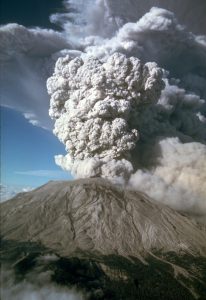
(CC0)

(CC0)

(CC0)
But there I was, every day trembling with rage and despair, watching our own brilliant, suicidal, technology-obsessed society – so spoiled and addictively entertained by its own jaw-dropping talents – doing it all again only more dangerously, threatening nuclear war and destroying the only planet in our solar system capable of supporting higher life forms. We are thwarted by governments, religions, corporate billionaires and oligarchs and deceived by shortsighted, closed-minded scientists, mainstream academia and media that seek to hide some of our most important truths. Even our own history, the true chronology of our species and its civilization – perhaps the very information that would show us our past follies – is forbidden to the masses.
We’ve become a juggernaut, an overstuffed train of fools racing head-long down the tracks toward the South Wall of the Great Unknown.
According to Plato, when it comes to telling the narrative of the first civilization stupid enough to off itself, it starts 2,500 years ago with the priests of the Nile Delta. From the pillars on their temple walls, these ancient priests recited the 9,000-year-old story of Atlantis and the city-state of Athens to a man named Solon. He was one of the famous Seven Sages who, in middle-age, traveled on a grand tour of Egypt. “Solon The Lawgiver” was so revered in ancient Greece that today his statuary images grace no less than three government buildings in Washington D.C. – most notably the Library of Congress.

Solon, the wise lawgiver of Athens (CC0)
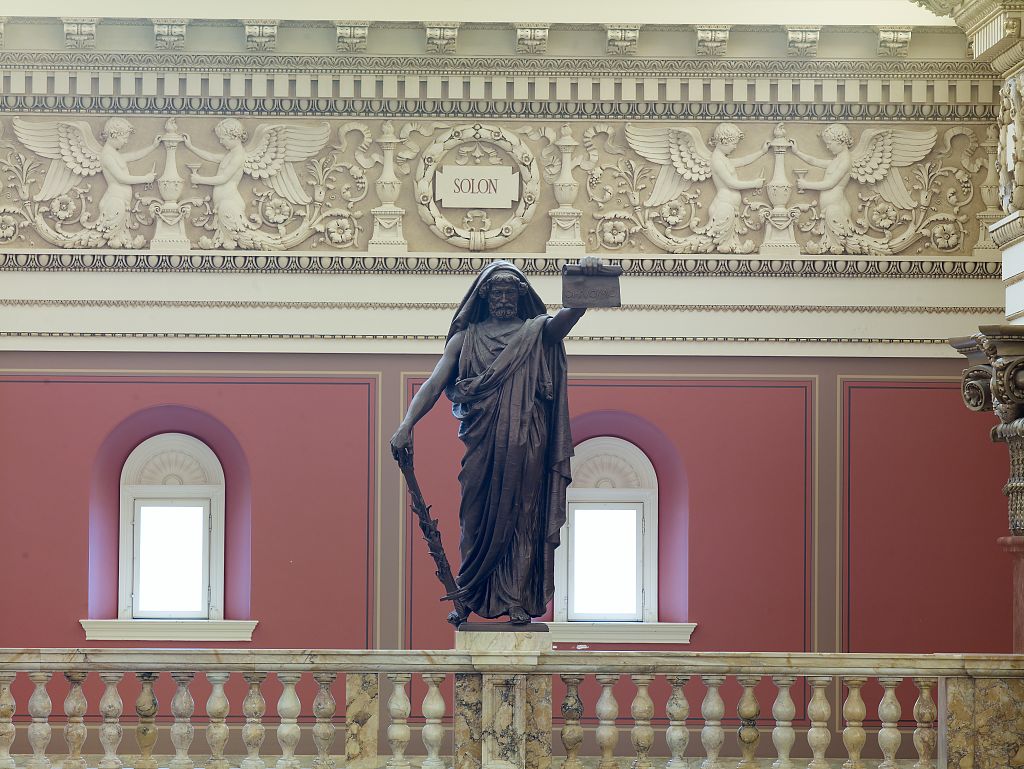
Solon at the Library of Congress (CC0)
The distinguished lineage continued down to his great nephew six-times removed. Plato thought the story of Atlantis so important that at the end of his own life, he wrote about it in two lengthy dialogues, Timaeus and Critias, which – strangely – were still unpublished when he died. Plato’s student Aristotle thought these two dialogues were bunk, beginning the long tradition of impugning the veracity of Plato’s words on the subject. But in Raphael’s famous “School of Athens” fresco in which Plato is at the center, the single book the artist thought essential for the philosopher to be carrying – of all his famous writings – was Timaeus.
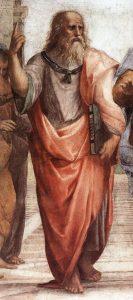
Plato by Raphael, School of Athens fresco (CC0)
So here I am 2,500 years later (or 12,000, depending on how you look at it), daring to take up where Plato left off. Since he is, amazingly, the only person to have written about Atlantis, I have, with good reason, made him my story partner and credited him as such on the cover of all the books in the Gods of Atlantos Saga. In fact, though he wrote a long, vastly detailed description of the culture, architecture, horses and politics of Atlantis and Athens, he shared only the most rudimentary facts about the gods, demi-gods and mortals that peopled those societies and what made them tick. What made them so worthy as to be utopian in the beginning and so greedy and murderous in the end that they and the world they populated deserved to be punished by extinction.
I had to use my skills as a researcher and historical novelist to adapt the Solon/Plato story and re-imagine the world as it was twelve millennia ago. To fill in the “holes in history” that were not so much potholes as I’d find in my Renaissance stories, they were gaping, bottomless chasms. It was a challenging feat bringing these iconic characters to life, to make them human, warts and all —foibles, insanities, passions, undying love —telling what was clearly a cautionary tale, while creating an entertaining, “unputdownable” epic. But that is where the fun is.
In The Gods of Atlantos Saga, I desperately wanted, once and for all, to give Plato his due. The few historians who alluded to the great Greek as the progenitor of the story of Atlantis might mention him as the original source, but few take the story seriously, as he intended it to be, calling it “myth” or “allegory.” No one has ever taken the time to wonder why this philosopher – a man revered in his own lifetime – would write something so radical and outrageous. These were dialogues he knew would earn him ridicule or perhaps death (as was the Fate of his teacher, Socrates) simply for daring to tell the truth. Maybe that’s why Plato never published them. His nephew did after Plato’s death. The derision exists today, scathing character assassination spewed out by the academic elite, even for the most erudite researchers and writers about Atlantis, a subject derisively called by many “the ‘A’ word.”
“A Lifelong Obsession”
I have alternately said I’ve been writing this thing for the last 10 years (solidly), but also 22 years (which is when I wrote the first 550-page draft), but the truth is it’s been a much longer odyssey than that – fully 72 of my 74 years…and counting.
There were several important clues that this book series of “first contact” and a world lost to the Great Flood would become my compulsion and my Destiny. When I was two, my mother and grandmother, in a panic, left me sitting outside in our suburban New Jersey backyard to call the police and local newspaper… because a flying saucer was hovering right overhead.
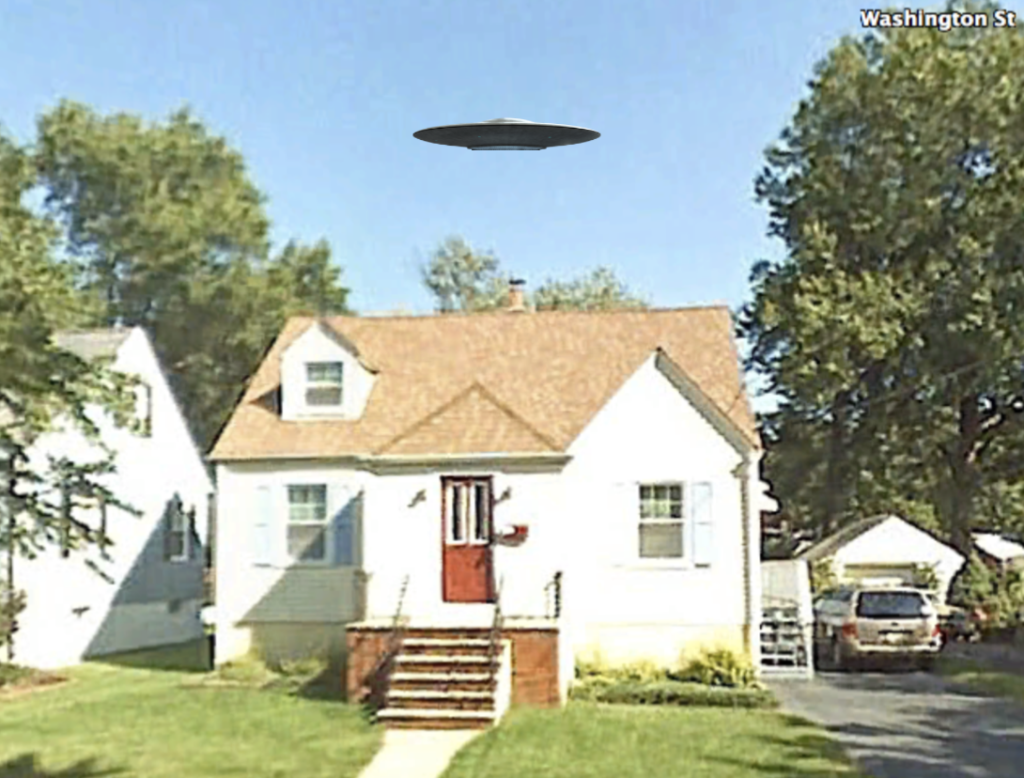
My house in Bound Brook New Jersey with the craft hovering over it the way my mother described it, by Robin Maxwell.
Her desertion of me so embarrassed my mother that she didn’t admit to the incident until I was thirty. If I was abducted back then, I have no memory of it, nor nightmares, lost time, implants or PTSD. I was simply left with an unquenchable fascination, nay obsession, with the subjects of UFOs and aliens.
As if that wasn’t enough, I’ve had recurring “tidal wave dreams” from before I can remember (we did not call them tsunamis back then). Dreams that continue to this day. They take place in diverse locations, including the Jersey Shore, on riverbanks, or in the middle of New York City while trying to save President Nixon’s advisor John Ehrlichman from a 200-foot wall of water.
Another occurred in a dream where I was sitting on an African beach watching the waves grow larger, but not becoming huge. I remember thinking, “Ha ha ha, no tidal waves here.” Then I stood up and turned around, only to be greeted by a towering monster…coming from inland!
When I was eight, under the influence of ether during a tonsillectomy, I dreamt of giant, black-eyed, Samurai-garbed, machete-wielding aliens slaughtering the people in my neighborhood. And during the same surgery I saw, from a distance, planet Earth (this was twenty-five years before the famous “Blue Marble” shot was taken by the Apollo 17 crew from space) impaled by gigantic stakes.
Apocalypse was somehow embedded in my consciousness from the very beginning.
So, you’ve got a little girl in suburban New Jersey who seems normal on the outside, but inside is a very weird kid.
In 1977 I picked up a copy of Von Daniken’s Chariots of the Gods at a yard sale for a dime. The “Mysteries of the Universe” – UFOs, aliens, lost civilizations, in particular, Atlantis – overtook me. Rocked my world. What had been lurking in my subconscious since my youngest days came exploding to the surface. I’d been shaken out of my stupor. All those questions Von Daniken asked…were suddenly ones I wanted answered, too.
All those mysteries needed explaining.
Suddenly, stories began surfacing. The Betty and Barney Hill book, Interrupted Journey, made a lot of waves when the couple described their abduction by aliens during hypnosis and two hours of hours of “missing time.” The pair of them received nothing but skepticism and ridicule. But it was the first time I found myself asking why anybody – especially a middle-class, interracial couple back in the 60s – would want to draw attention to themselves – especially something so cringe-worthy as being probed and tortured by little grey spacemen.
But there were credible, even award-winning programs on TV that poked at other equally fascinating enigmas without arousing the ire of the naysayers. Kenneth Clark’s “Ascent of Man” series matter-of-factly stated that there were giant, gaping holes in the timeline of human evolution – particularly in the evolution of human consciousness and culture. Hmmm…I thought. Hmmm…
I’d just moved to Los Angeles in 1976 and realized I was meant to be a writer when three feature films came out the next year. “Close Encounters of the Third Kind”, “Man Who Fell To Earth”, and the wonderfully moody “The Last Wave” (about a tidal wave prophesied by some Australian Aboriginals). These were mind-boggling events for me. More evidence that I was onto something important – something I had to write about.
The subject of a great flood wiping out civilization so fascinated me I bought a brand-new hardback research book – my first ever – Lost Atlantis by J.V. Luce – about the possible location of the sunken city via a massive eruption of a Mediterranean volcano, Thera, one that had devastated its Island of Santorini, and Minoan Crete 200 miles south of it. However, even my unschooled and minuscule knowledge at that point rebelled against the notion. Yes, there’d been a flood that destroyed what was considered the greatest maritime culture in the known world.
But the dates were off by 10,000 years!
I was horrified to learn that the author put it down to Plato’s mistake. He hadn’t actually meant to say 9,000 years. He’d meant 900 years. In fact, Plato had stated not once but twice that “9,000 were the number of years that had elapsed,” and now it irritated me beyond measure that someone was second-guessing perhaps the greatest philosopher who ever lived in order to make the math work out for his Thera/Minoan Crete scenario.
However, the book contained a treasure beyond compare – the full texts of Plato’s dialogues Timaeus and Critias. I read, re-read and re-read the texts until I began to understand what he and Solon were trying to get across. Though it was, of course, a cautionary tale about societal collapse due to greed, hubris, corruption and unbridled violence, he made it clear that the Atlantis story was in no way a myth, but the true history of the world. “Not mere legend…but actual fact” were Plato’s words.
It was then I began linking up the several mysteries – alien visitation in the distant past, holes in the evolutionary record, Plato’s lost civilization and a great flood. Suddenly I was studying something on my own – not in school. I’d become an independent researcher!
I somehow secured a lunch date with Michael Cremo, the “alternative archaeologist” and author of a mind-boggling book called Forbidden Archaeology: The Hidden History of the Human Race (with a cover blurb by Graham on its most current edition). The suppression of evidence that our species has been around and quite advanced not for tens or hundreds of thousands of years but millions.
Around the same time, I found a book, Robert Temple’s thought-provoking Sirius Mystery. Poring over its pages I learned about the baffling African Dogon tribe of Mali. Since time immemorial, they have possessed advanced astrological information, but explaining how they obtained it is incomprehensible, particularly because it is about a star system that cannot be seen with the naked eye.

Dogon people, Mali, by Devriese (CCBY3.0)
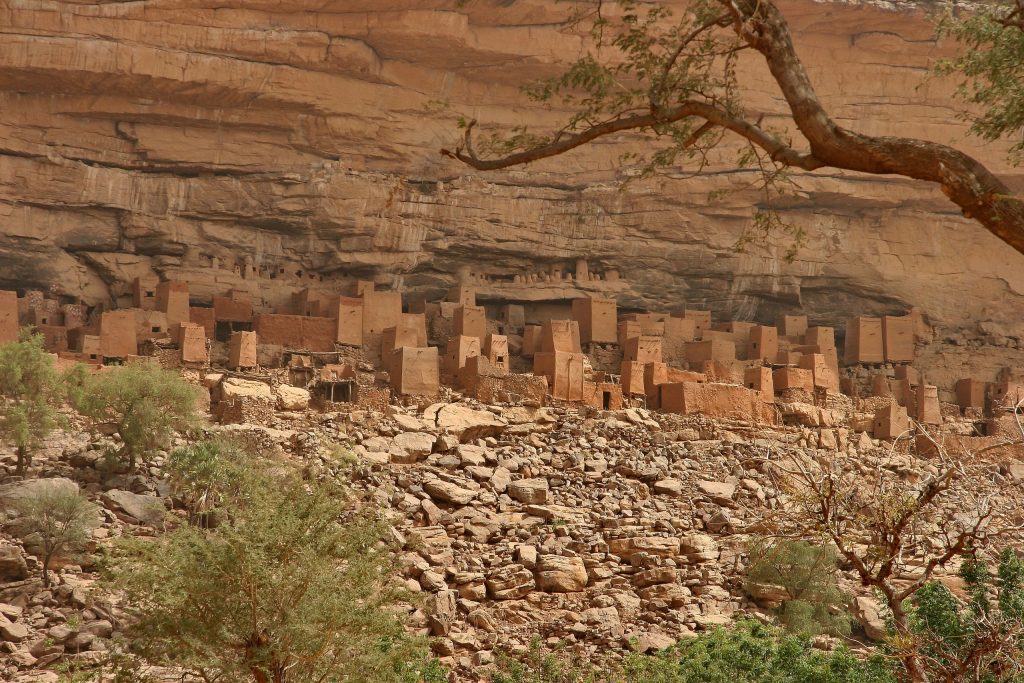
Dogon Cliff dwellings, by Ferdinand Reus (CCBYSA2.0)
Back in those days, Carl Sagan was not afraid to say in his then-most-important book and television show, Cosmos, that the “knowledge of the Dogon is the best evidence we have to date of extraterrestrial visitation in the distant past.” He later retracted that assertion, perhaps under pressure from the “we-will-be-happy-to-ruin-your-reputation” academic elite, but the damage, for me, was already done. I could not unread what I had read.
By then, I’d managed to become a writer myself – a Hollywood screenwriter, partnering with Irish-Aussie Billie Morton, together writing and selling to the studios broad — and some say tasteless — comedy screenplays about outrageous women, 30 years before “Bridesmaids” made such a thing box-office gold. Unable to help myself, I privately continued to write scripts and treatments on the my secret obsessions, from the dead-serious “Captstone,” my first outright Atlantis story …to a silly comedy – “Time and Time Again” – about a space trashman who gets sucked into a garbage vortex which is none other than a time machine. It lands him 12,000 years in the past where aliens have made the natives into slaves who mine for gold.
Then came my feature script “The Invisible,” and after that, everything changed. Doors were suddenly flung open. I got called into meetings with producers, studios and networks. Set amidst the Dogon tribal lands, I had two people – an American filmmaker and a Dogon tribesman – simultaneously sharing dreams, exploring the evolution of human consciousness in the distant past, that had been genomically manipulated by who else? Advanced extraterrestrial beings.
Through an old friend, “The Invisible” came to the attention of Shirley MacClaine, who’d just won a best actress Oscar, and had published a bestselling novel about the “woo” in her life (Out on a Limb). She invited me – unbelievably – to a rehearsal of her one-woman show, and then to her Malibu home to talk about the script. Knees knocking, I sat in her living room for four hours while she grilled me about what I knew of UFOs and aliens, of which I knew precisely nothing. Nor, to her dismay, did I understand why I had chosen November 17th as the date of an important Dogon ceremony, as, Shirley explained, it was an important date to Pleiadian extraterrestrials. Duh. Later, as she showed me out, I plucked up the courage to ask her if she had any interest in becoming involved in my film, and she answered, “Oh no, honey. After my book, everybody already thinks I’m out of my mind. I just wanted to know if you knew something I didn’t.”
Not two months later, the same thing happened with Lily Tomlin. Introduced by my friend, her development person Dayle Michelle, Lily invited me to her house in the Hollywood Hills because, though she had read “The Invisible,” her goat had eaten the last page, and she was curious about the ending. Once more, I was too young and star-struck to turn this incredible opportunity into involvement in the project and left empty-handed.

Shirley MacLaine (CC0)

Lily Tomlin, 1986 (CC0)
It was starting to dawn on me that I knew next to nothing about my subject and had no earthly idea what was driving me to write about it.
I only have a vague idea why I went on a strange road trip with the movie producer, Alexandra Rose, and a van full of well meaning spiritual seekers out to the three Mesas of Hopiland in Arizona – a place where humans had inhabited continually for 1,100 years. But I did have the “The Invisible” tucked under my arm, and when I was sitting at the kitchen table of the much-revered Hopi Elder, Thomas Banyaca, I laid the script down in front of him and asked what he knew about extraterrestrials and UFOs out on the mesas.
Without a second thought, he pulled out a National Enquirer with a picture of a flying saucer and said very calmly, “Oh, this is very common here. The space brothers have been visiting us forever.” And later, he took us to the Hopi’s “Prophesy Rock”, which explained the destruction of three previous human worlds. Whenever people became greedy, worshiped technology as a god, warred with each other, and repeatedly forgot the sacred teachings they’d been given to care for the Earth as the source of life and sustenance — three apocalypses inevitably ensued. The first was by fire, then by ice, then a flood. Would we come to our senses in time to stop the destruction of this, “the Fourth World?”
Thomas became a good friend, staying with us whenever he came to Los Angeles. He never let me forget about the Hopi Prophesy, which was eerily reminiscent of Plato’s story of Atlantis.
As luck – or was it my Destiny again? – would have it, “The Invisible” found its way into the hands of perhaps the only person in the movie business who thought I was onto something and was willing to stick out his neck and open his wallet for my ideas – Ronald Shusett, the co-writer-producer of “Alien” who had, in fact, dreamed up the iconic “chest-burster” scene that scared the crap out of everyone who ever saw it.
Ron began mentoring me and hired me to write my first serious Atlantis-themed screenplay. “Rush to Atlantis,” was an action-adventure feature film set in 1907 that had the feel of an Indiana Jones movie (so, of course, it was not seriously serious, but rather tongue-in-cheek humor overlaying consequential subject matter). It did, however, establish “Plato’s Poseidon” as a character who had survived the end of the world 12,000 years before in the huge flying saucer-shaped mothership he’d arrived in on Earth, now buried under the “Central Isle” of the circular city of Atlantis.

Atlantis city by Rocío Espín Piñar ( permission acquired)
The next thing I knew, Ron, his wife Linda, my husband Max, and I headed out on a road trip to Las Vegas and found ourselves sitting in the study of the alternately famous and infamous John Lear, aviator and founder of Learjet. John had called Ron and wanted to talk about movie ideas.
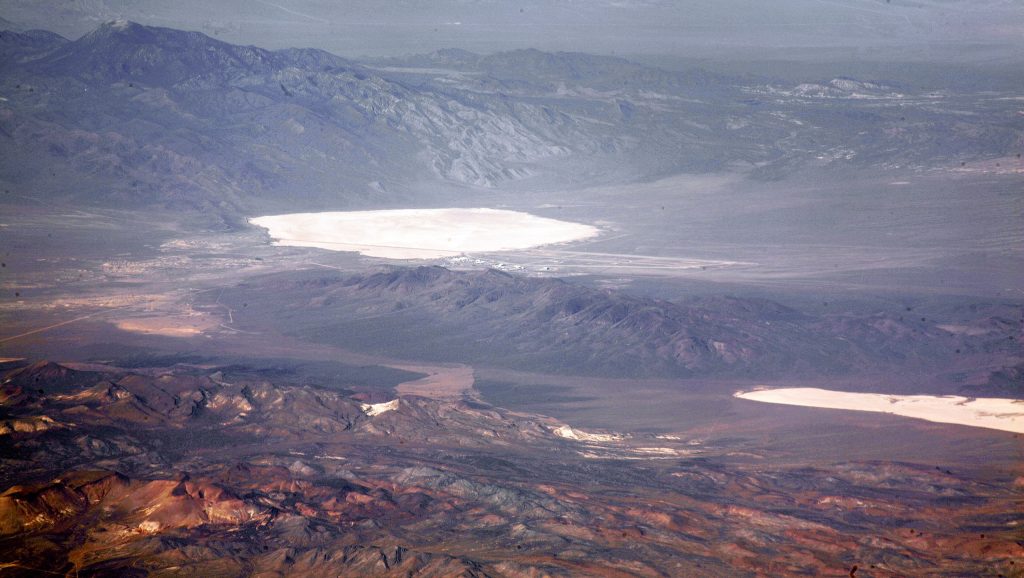
Area 51, by Doc Searls (CCBY2.0)
He sat there pitching us stories about Bob Lazar, a man who had worked inside the top secret “Area 51” and attempted to reverse-engineer captured UFOs. John regaled us with stories about the town of Dulce, New Mexico, where a UFO had supposedly crashed, and lots of cattle mutilations had taken place. Most interesting was an alleged underground alien base under the mesa behind the town where a vast massacre had allegedly occurred, with 66 human scientists killed. It was only 1985 — almost 30 years before these names, places and happenings became ubiquitous in the world of Ufology — but it turned the heat up on my fascination with everything “other.”
Not long after that, Max and I drove out to Dulce to snoop around and interview the locals for a story Ron and I wanted to write. We arrived in the tiny little Jicarilla Apache reservation town near the “Four Corners”, but basically in the middle of nowhere. We only spent a day and a night there, but we got the shit scared out of us. I believe (but we’ve never told anybody) that Max had an abduction experience at the Dulce Best Western Motel. But that’s a story for another day. Even after all these years, if I try to tell the story to myself, I stutter.
Ron and I hired Christopher Vogler, international bestselling author, writing teacher and Joseph Campbell-inspired “Master of Mythical Storytelling” in Hollywood, to give us notes on “Rush To Atlantis,” which he liked very much. But neither his input nor Ron’s clout – he’d gone on to write and produce two more science fiction blockbusters “Total Recall” and “Minority Report” – could help find a home for “Rush to Atlantis.” It was a terrible time for women writers in the film industry.
But by now, I was possessed by my idea for a truly serious Atlantis story – a novel – one that would give Plato and his dialogues their due. One that would use as much of the detail he’d written and, despite my more-than-respectable source material, was bound to land me in hot water. But what the hell…
Around this time, I’d been deeply moved (and terrified) when the famous novelist Whitley Strieber published his memoir Communion: A True Story, about his repeated abductions by aliens.
It was the first time the public was introduced – by its compelling and skin-crawlingly realistic cover – to the “Greys.” The conclusion he’d come to at the end of this non-fiction book was that the “visitors” who took him numerous times were not from outer space – as most who believed in UFOs and aliens at the time did – but were interdimensional creatures, ones from the other side of the membrane between universes. Strieber went on to assert that they were the original inhabitants of Earth who’d been here far longer than the human species had been. There was a tremendous uproar about Communion, skeptics accusing Strieber of fabricating the story to sell books. As a writer myself, I tended to believe the author (he could have just as easily written it as another of his extremely successful novels and sold just as many copies). And thinking of all the abductees who’d come forward since Betty and Barney Hill in the 60s, I asked myself, “Why would a person – any person – especially one who was already a wealthy and respected writer, go public with a story that would set himself up for devastating ridicule?
In any event, I decided that since my narrative is an origins story of human civilization, I was going to tackle all my favorite “mysteries of the universe.” Therefore, interdimensional aliens – a mystery that has been around for perhaps thousands or even millions of years – needed to be an important element of my novel.
The Characters Emerge from the Deep
I was faced with not one but three intractable mysteries, “story holes,” something we writers look upon with horror if they cannot be plugged up. Above all, I wanted this telling of the Atlantis myth to not only be beautifully written but to also make perfect sense, remain accessible for modern readers, and employ logic and science instead of magic and fantasy. It was going to be genre-busting – “pre-historical science fiction.” I knew I needed to gird my loins for the struggle of my life.
The first mystery: Why, after creating a utopian society and letting it fall into hubris, greed and depravity, as Plato describes, did the rulers of Atlantis go to war with the other great civilization on the planet 12,000 years ago – the city of Athens? Did the mega-quakes, volcanoes and floods that followed in the next sentence of Plato’s dialogue have anything to do with said war? Alas, we will never know the answer. Plato breaks off his narrative at this very moment, and before he finishes it, he dies. Damn!

The Destruction of Atlantis by Nicholas Roerich, 1928 (CC0)
I felt certain that Plato meant for his readers to understand it was the loss of a moral compass that bedeviled the Atlan people and was somehow to blame for the world-ending floods and earthquakes. But I simply could not go on without an understanding of the reason for war between the two civilizations. With no help except my experience as a storyteller – one who understands that character, motivation and conflict are everything – I concocted what I believed was a workable answer. Athens was not just another city-state sharing the planet with Atlantis.
Athens was Poseidon’s brother!
I conceived of a “backstory” for Poseidon Ra and his younger sibling, Athens, whose jealousy would fuel the narrative from beginning to end. Rival brothers are a much-used literary trope, and this one saved my writerly neck.
The “Brothers Ra” come from a world, not unlike the one Zecharia Sitchin describes in his Sumerian translations – a planet in our own solar system that spins in an unnaturally (thousands-year-long) elliptical orbit around our sun.

Orbit of Planet 9 – Terres (CC0)
I reckoned that such a planet (one I called “Terres”) would be a cold, dead world where the remnants of civilization (quite a technologically advanced one) was forced to live under “energy domes,” and wait-out most of its far orbit in communal “sleep-phase pods.”
Terresian technology was based on “the Vibrus” – a theory (not unlike today’s “String Theory”) asserting that at infinitesimal levels, nothing exists except vibration, each with its own characteristic frequency. By harnessing modulations and manipulating these energy frequencies in innumerable combinations and strengths, everything is made possible – creation, healing, destruction, extreme genomics, cloaking, levitation, translocation of non-organic matter, gravitation, anti-gravitation and space travel. It is called Phaetron Technos.
In Plato’s story, Poseidon is a God who is given “as his portion” the continent of Atlantis. He falls in love with a mortal woman, and they have five sets of twin sons. “My” Poseidon’s character arc is “Mr. Spock-goes-Tarzan” to get the girl. A Terresian scientist by training, once on earth he suffers a love-hate relationship with technology… and brings horses to humans, becoming the “God of the Horse” to the Atlan people. A “reluctant god” who comes to understand true love, Poseidon fights ferociously to save the world.
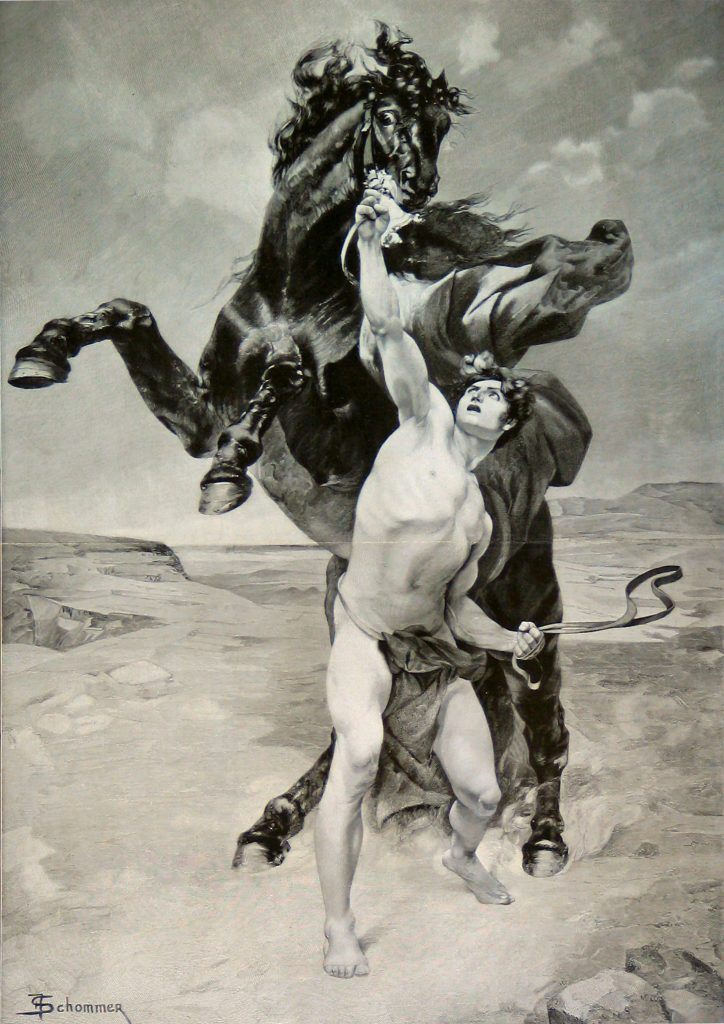
Poseidon, wildman, taming the first horse (CC0)

Horse culture in Atlantis (PD0)

Poseidon, God of the Horse (PD0)
Athens is a sexy bad boy with the worst luck in the solar system, slowly going mad as he’s forced to battle brain-invading interdimensional aliens, amphibious monsters and planet-busting comets. He lets greed rule him and will stop at nothing to mine for the mineral that powers their technology, even if it means destroying what the native peoples call “Erthe” in the process.
Cleatah is a mushroom-eater Erthe-girl and later the wife of Poseidon. A primal, tribal female. She teaches a left-brained “god” what love, passion and instinct are all about. She brings psychedelics to civilized society.
Talya, an Ice Queen (sorry for the cliché), is a brilliant geneticist. She has a burning desire to mate with the heroic, perfect Terresian specimen, Poseidon, no matter the human cost. Initially amoral, motherhood teaches her what love is.
The central conflict of the story – every story needs a conflict – is that “titanum,” the mineral that powers the Vibrus, is dwindling on the home planet…and fast. If the stores are not replenished from off-world sources, the phaetron technos…and, therefore, the Terresians… are doomed.
So expeditions are launched – one to Mars (then a lush, watery world, where most of its animal life has evolved in the sea) with charismatic Athens set to govern 5,000 colonists to mine for titanum. The other is sent to Erthe with Poseidon and Talya heading up an elite team of scientists meant to continue the genomic intervention on the great apes, begun millions of years before by previous expeditions. Arriving on the sleek and gorgeous mothership called The Atlantos, they’re hoping to bring the population up to full speed in case the technos fails and the Terresians need to migrate en mass to the garden planet to survive. By now, the tribal population on Erthe has evolved to an anatomically human level —albeit culturally and intellectually backwards.
Poseidon never expects to fall in love with an Erthe girl and father ten sons or to govern the city and civilization called “Atlantos” (the spelling chosen to set it apart from all the other Atlantis stories). Athens never imagines he will to run into two kinds of nasty monsters and be forced to immigrate to his hated brother’s planet with all his colonists, pushing the siblings into a conflict that will bring about the end of the world.
That was as much of the story and cast of characters as I had.
By then, my husband, yoga master Max Thomas, and I were experimenting with psychedelics, particularly psilocybin mushrooms, DMT and Ayahuasca. My research brought us to the genius lectures and books of Terence McKenna, in particular, Food of the Gods. At this point, I realized that any story about the evolution of humankind – particularly some of those mysterious leaps forward – would need to include at least one character who was privy to what McKenna called “Vegetable Intelligence.”
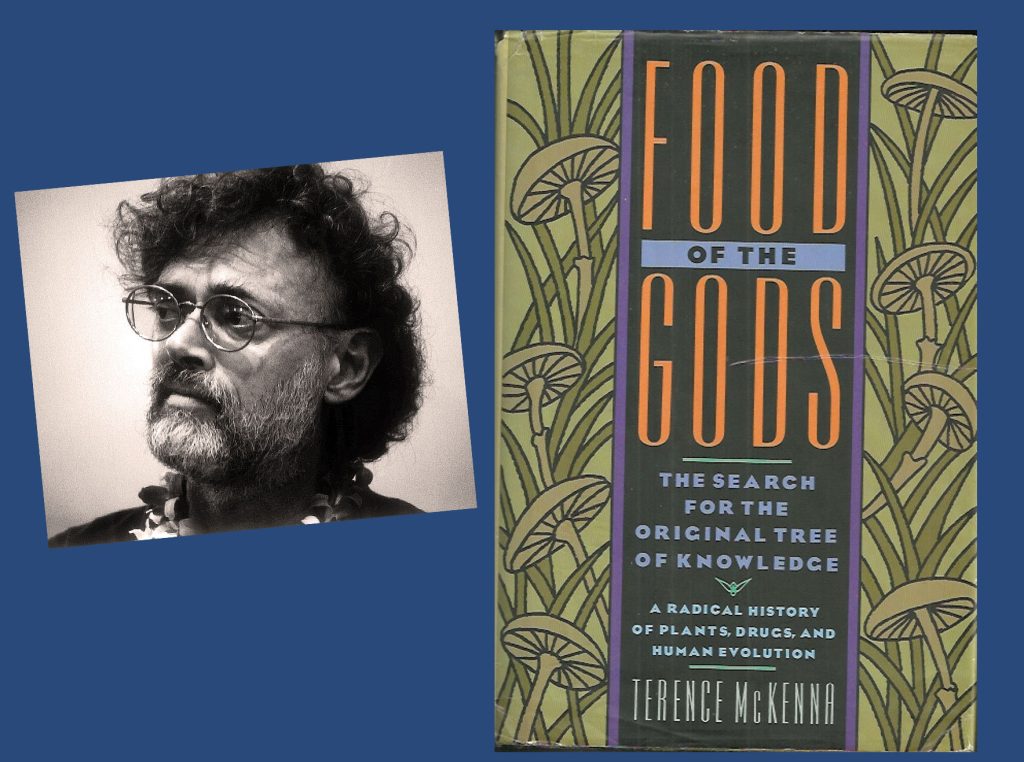
Terence McKenna by Jon Hanna (CCBYSA3.0)
Our dalliance with plant medicines helped me solve one of the other story holes I was still grappling with.
I had always wondered why, of all the females on the planet Poseidon chose this particular woman. What was so special about her that he, a “god” (or in this case a human astronaut possessing ultra-advanced intelligence and technology), would fall deeply in love with this rather primal individual.
My answer – thank you, Terence McKenna – was that Cleito (whom I renamed Cleatah because I thought it was a prettier name), alone among the primitive coastal tribes where Poseidon set down with his crew to study, has had her intelligence and senses expanded by magic mushrooms so significantly that she is able to engage with this intellectual giant, and quickly absorb his language, culture and even much of his scientific knowledge. In return, she imbues this somewhat bloodless scientist with the best of human qualities – love, physical passion and a deep appreciation of the natural world.
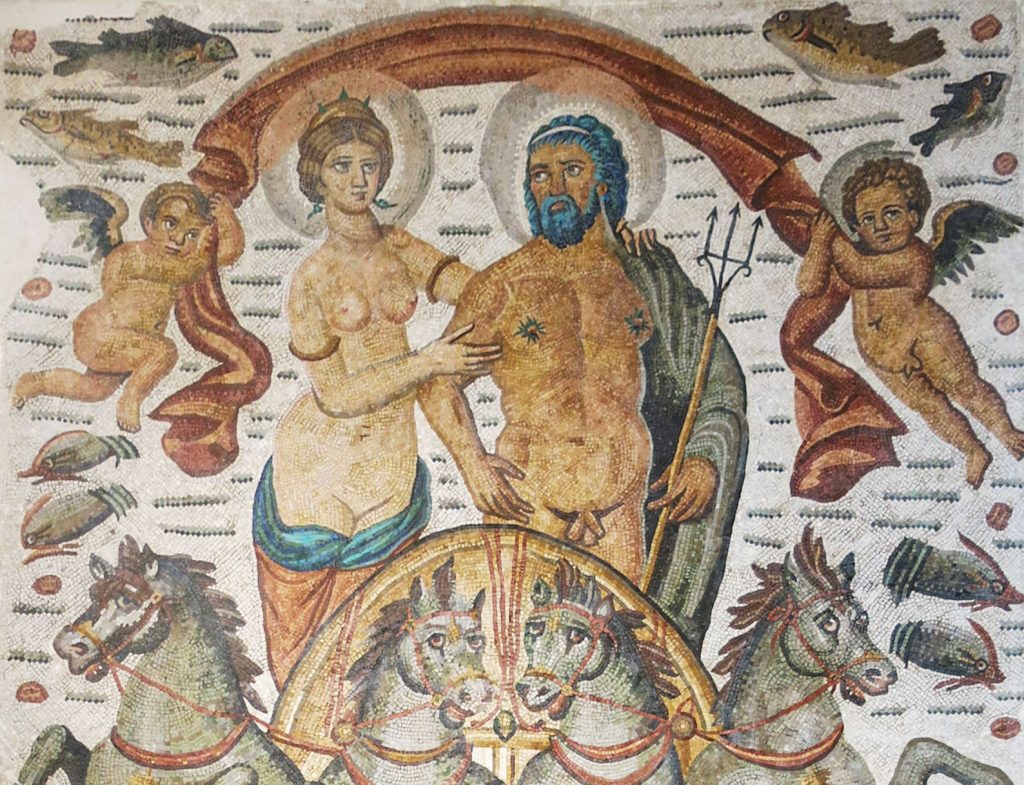
Cleatah and Poseidon in Mosaic, (CCBYSA2.0)
The Terresian geneticist Talya, of course, would despise the primitive who steals Poseidon’s heart, and thus a love triangle was born, another time-honored literary trope. And it happily set the stage for solving the final Platonic mystery – how and why did Poseidon and Cleatah end up with five pairs of twin sons?!

DNA by mirerek8, Pixabay (CC0)
It boggled the mind that 2,500 years ago Plato would conceive of what is clearly a genomic anomaly of staggering proportions. I will only say that Talya and her bag of dirty genomic tricks were involved, and this stickiest of historical mysteries provided me with the best engine for personal conflict in the entire saga.
Pieces of my humongous story were coming together, but a writers’ strike in Hollywood had brought my screenwriting career to a screeching halt. It was then I stumbled into historical fiction. The Renaissance – not unlike my beloved antediluvian world – strangely resonated with me. I therefore reluctantly set aside my universal mysteries, learned the art of deep research, and began writing novels about some of the most iconic figures in history – Anne Boleyn, Henry VIII, their daughter Elizabeth I. In each of the nine novels I would ultimately write, I would always be sure to solve a “mystery of history …”
“The Graham Hancock Effect”
It was 1997, and I’d had my debut novel, Secret Diary of Anne Boleyn, published by a reputable New York house, then translated into 14 languages. Those were the days of the “national book tour,” even for lucky first-timers like myself, when Barnes and Noble, Borders, and independent bookstores had author events every night of the week. At the end of my reading at a Barnes & Noble superstore in Hartford, Connecticut, the staff graciously offered me “…one book from our shelves, our gift to you.” I wandered around the aisles for almost an hour, searching the millions of books, wondering which – out of all of them – I should treat myself to.
You guessed it – the book I stumbled upon was Fingerprints of the Gods.
I started it on the flight back to California and devoured it like a starving woman, gorging myself on the feast of Graham’s luscious words and Santha’s incredible photos. I follow this one-time skeptic and his intrepid wife as they trekked relentlessly around the globe and, brick-by-brick, constructed an erudite and unimpeachable scholarly edifice, proving that establishment historians, scientists and academics were in pathological and sometimes hostile denial about the true history and chronology of the world.
I felt a huge weight lift from my heart, mind and spirit. I wasn’t a lunatic after all! I wasn’t kidding myself about lost civilizations and massive earth changes, a catastrophic flood 11,600 years ago coinciding with Plato’s/Solon’s and geologists’ dating for the end of the last Ice Age. Graham was of the opinion at that time – making the case of Charles Hapgood (with Einstein’s approval) and Rose and Rand Flem Ath’s theory of the “current” placement of Atlantis. By virtue of the sudden shifting of the planet’s “lithosphere”, the lost continent lay beneath the Antarctic Ice Cap.
After reading Fingerprints, I went on to Graham’s Mars Mystery and bits of Underworld and Supernatural (though by then, my eyes were unable to make out the books’ tiny fonts). But it became apparent that he shared my fascination with psychedelics and wasn’t afraid, like I still was, to let the world know of his experiences with these substances.
On the cusp of the Millennium, Max and I moved to a Mojave Desert property near Joshua Tree, California, a notorious hotbed of alien sightings and abductions. What happened then was another life-changer. The lush 22 acres upon which we built our home was a place of profound silence and magisterial beauty – vistas of flat top mesas, giant jagged boulder ranges, forested mountains and every sort of wildlife abounding. I instantly fell in love with Nature. I fell in love with our planet. Together Max and I engaged in a passionate ménage a trois with our little piece of paradise.
Here, I was able to bring to bear the techniques I’d learned from my historical fiction writing and a helluva lot of scientific research in physics, astronomy, archaeology, geology and genomics. And armed with the confidence I’d absorbed from Plato, Graham, Terence, Ron and all my other teachers I began mapping out the full origins story. Using the story and character elements I’d already created, I launched into the stupendous rise, fall, and destruction of the civilization of Atlantos and Athens. It was a sweeping saga of the intimate lives, loves and infamy of the so-called gods and the aboriginal Erthan tribes with whom they interbred. It brimmed with conflict, sibling rivalry and a dynasty as large and wonderfully dysfunctional as anything George R.R. Martin had ever conceived.
The first novel that exploded out of me in the high desert in the year 2000 was called, simply, Poseidon: The God-King.
With Poseidon’s home world, Terres, a desolate, dying planet, his first look at the glorious environment to which he’s traveled 940 million miles, causes him (like I did) to fall in love with the planet. Only later does he fall in love with the woman. I made this dual love affair Poseidon’s #1 character trait and motivation. He decides he’s going to protect this lovely paradise from anyone who might harm it. He realizes early-on that his advanced technology should not be used with the primitive peoples except in the most extreme circumstances. They are smart and resourceful, and will discover the use of technos in their own good time. This, however, becomes one of the major conflicts of the book – the internal warring between the use of technology and respect for Cleatah’s “Great Mother Goddess” and the natural order of things.

Technology vs. the natural world
by Shadow Robot Company (CCBYSA1.0)
I hired Chris Vogler to give me notes on the draft. Again, he was complimentary, believing I had written “a Unified Field Theory of Atlantis,” yet something was still missing. It felt to him like the story needed expanding. A lot of expanding.
But I was eager to publish and forged ahead with only minor expansion. The book was completed, accepted by my literary agents, and its introduction to the publishing world and Hollywood about to begin (this was the dawn of distributing manuscripts to everybody at once by clicking SEND on their computers). However, the submission was abruptly halted in its tracks at 8:45 in the morning by nothing less than the first plane hitting the North Tower of the World Trade Center on 9/11.

The World Trade Center North Tower, 9/11 (CC0)
This was a mind-fuck on every possible level. With the publishing industry (like every other business) in shock, Poseidon: The God King was rejected everywhere – “Too apocalyptic for our list right now.” As disheartening as it was at the time, in retrospect, it was not only an aspect of the project’s correct evolution and Destiny. At that very moment, my historical fiction writing career took off, and I put Poseidon aside to concentrate on producing a major novel in that genre every two years.
When – a dozen years later – I picked the manuscript up to continue work on it, I realized it was a total mess. Chris Vogler had been right. So much was missing from the story. In later books, we still needed to meet the 13 adult “Children of Ra and the Shore People.” Characters like Isis (Only daughter of Poseidon, horsewoman extraordinaire); Athena (Flamboyant. Sexual. Addicted to technology); Atlas (Techno-geek, obsessed with cracking the mystery of time travel, with a soft spot for Isis and a hard-on for Athena); Giza (historian and author of the Chronicles of Giza). Even the Dogon would have their moment in the sun, with one of the sons of Poseidon and Cleatah marrying a woman of that tribe, Bastet. Thus began the process of rewriting and considerable expansion.
When in 2013 – the moment JANE: The Woman Who Loved Tarzan was done and dusted –passion for my Atlantos book surged like a tsunami, and I was helpless to resist it. Too, I realized that moving to the California high desert was yet another facet of Fate taking me, kicking and screaming, wherever it wanted me to go with the writing of my saga. Because in 2014, I became aware that Graham Hancock (along with his fellow TED Talks-banned friend, Rupert Sheldrake) was going to be speaking at a symposium called, appropriately, “Synchronicity” at the Joshua Tree Retreat Center – a mere 20 minutes from our home.
I took a deep breath and decided there was no way this man would be in such close geographical proximity to me without us meeting. By hook and by crook, Max and I kidnapped Graham and Santha and drove them through the pitch-black desert back roads (them no doubt wondering if they’d made a mistake and come out with a couple of axe murderers) to our house where we had dinner. That very night the four of us became fast friends.
At the end of the weekend, on Graham’s urgings, I’d arranged an expedition to the top of our mesas, considered by our local tribes as “the Vatican of the High Desert.” Under the baking sun, we located and photographed scratchings in basalt that native shamans, thousands of years before, had etched-out as they were falling into psychedelic trances. It was thrilling to find one black stone carved in the distinct shape of a San Pedro cactus – a known psychotropic plant.
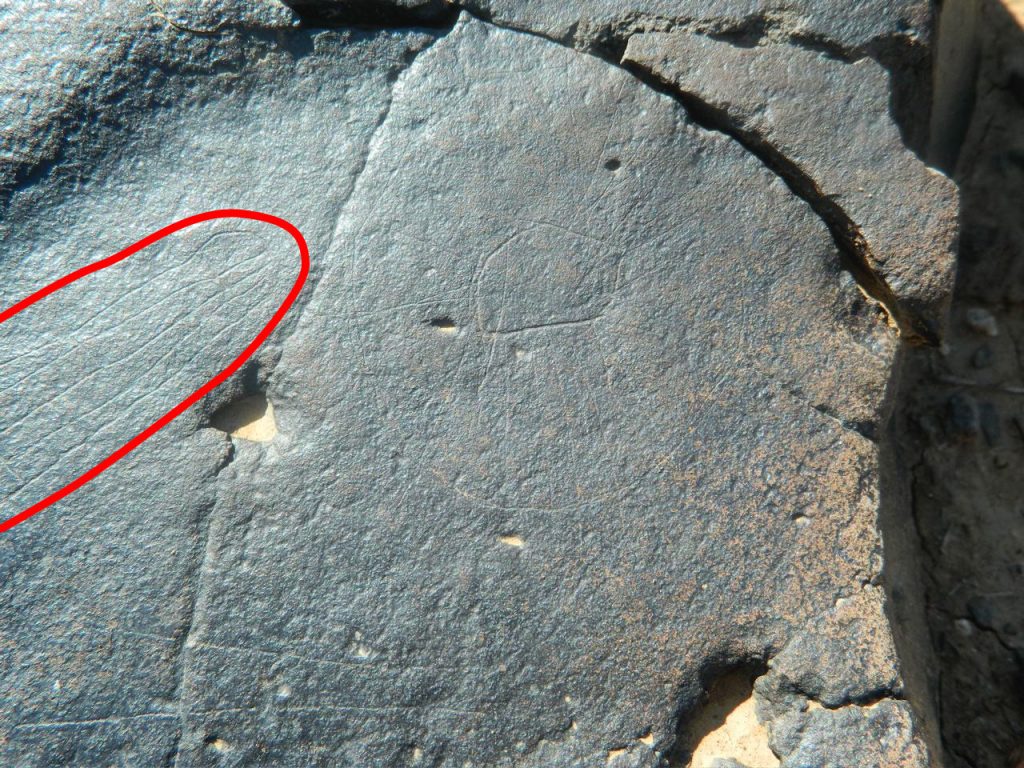
Basalt stone carved with a San Pedro cactus (on the left) and another UFO-shaped etching right next to it, by Robin Maxwell
At another site at the base of the mesa with entire granite walls of colorfully painted rock art, we asked Graham to explain his views on Lemuria and Mu.
Later the four of us took a ride into Joshua Tree National Park. With Graham a captive audience in our backseat – I screwed up my courage and pitched the still-unfinished story to them, and because I was horribly nervous, I pitched it really badly. But something I said – perhaps the theme about parallels with Plato’s dialogues and the misuse of technology destroying the planet – caused Graham to utter: “Then it’s going to be an important book.” My heart was in my throat because there was no one on earth whose work on this subject I respected more. So when I heard him say the words that even I was uncomfortable saying to myself, I was suddenly validated and resolute. All at once it felt right that this book was the central focus of my creative life.
It was nearly impossible to believe that the researcher/writer, a fellow “Plato apologist” who had influenced my thinking, offered the most detailed theories and facts in all the areas I’d needed for my story, had given me the confidence to go balls-out with what was shaping up to be an enormous, 3-book series, was actually aware of my work, and thought it potentially valuable.
Thus fortified, brimming with confidence— if not the fear that comes with the act of building and destroying worlds, the collisions of lovers, rival brothers, the forces of nature, monsters and interdimensional aliens—I went forth and finished the first volume in the series, a book I called Atlantos.
This would be the first self-published title in my career. With terrible trepidation, I sent the manuscript to Graham for a review. He took time out of his crowded schedule to read it, and I held my breath… and held up the publishing date… hoping I might get a decent review from the single person in the world whose opinion on this book mattered most to me. I admit I was concerned. At that time in his lectures, Graham said several times: “It’s not that I don’t believe in UFOs and aliens. I just don’t need them to prove advanced civilizations existed on Earth before the Great Flood.” Of course, a significant aspect of my book was based on grey, brain-invading ETs, so it was worrying.
It turned out that I had not waited in vain. Graham’s review of Atlantos was an author’s wet dream. I could not have asked for a more thoughtful or complimentary endorsement, especially in light of Graham being an extraordinary historical novelist himself. And there was no hesitancy about my alien storyline! I quickly slapped a blurb from the review on the cover of the book and published.
That was not the end of his support. He invited me to write about Atlantos in an article for this website and include a sample chapter from the book. Then he promoted it on his Facebook page. His faithful readers took note, and enough of them bought and read the book that I was rewarded with some fans and what I like to call “the Graham Hancock Bump.” For a New York minute, it was an Amazon #1 bestseller in the U.S. and U.K.
But then a funny thing happened. The moment I began telling people about Atlantos, I found myself getting slammed with judgment, ridicule, and even shaming about my knowledge and beliefs, and even the fact that I dared write about these subjects. I was a respected author of historical fiction. Why hadn’t I just stuck to writing about the Renaissance? I knew the U.S government had done a phenomenal cover-up job about UFOs and aliens, but they’d heaped so much derision, mockery and humiliation on people that they were afraid of “coming out of the closet” with their beliefs.
I was stunned to discover how many of my own friends, family, neighbors and even devoted fans had suddenly marginalized me, lost respect for me. They made stupid jokes at my expense, like asking if I was going to be wearing a tin foil hat.
And something else I learned was that UFOs and aliens were far more acceptable than what has come to be known as “Alternative History,” of which Atlantis is a crucial part. There were more cringing and nastier jokes about anyone who dared to disagree with mainstream historians and archeologists about the chronology of the world. Even Graham was not immune.
But now it was time to get down to business. Atlantos was merely the opening salvo of the complete saga. I took Chris Vogler’s advice and again began to expand to my heart’s content. I expanded my research, too, reading Robert Schoch, John Anthony West, Robert Bauval, and Christopher Dunn. I decided to set aside my historical fiction career and write no other books but these. The Saga would not need three volumes to tell the story. It would need five.
I fleshed out the major storylines, characters and relationship arcs and set up one of the ten sons as the architect who built the Sphinx and Great Pyramid of Giza. I beefed up my two younger leading ladies – the heroic Isis and self-serving Athena – in their own love triangle with Atlas. I knew I was rewriting Greek and Egyptian mythology itself but I was on a roll and didn’t give a damn what anybody thought about it.
The biggest chance I took, however, was with Athens’s storyline, a tragedy both Greek and biblical in proportion. Poseidon’s little brother had the bad luck of Job and the fiery fall of Icarus. Haunted by the aliens that migrate through a tear between universes, he begins to crack…

Tear in the membrane between two dimensions, by Luke Hancock (src 1 2 3, 4 by timlewisnm, CCBYSA2.0)
While Athens starts out as a charismatic and basically harmless playboy, his spine is so weak and his character so flawed that he eventually becomes a monster himself.
Finally, I dug into the psychedelic teachers – Cleatah and Thoth and allowed them to be the bringers of “mysteries” to the population of Atlantos City. I built them a temple in the shape of a giant mushroom and had them initiate groups of Atlan citizens into the secret knowledge, just as the Greeks had done at the Temple of Eleusis outside Athens 10,000 years later.
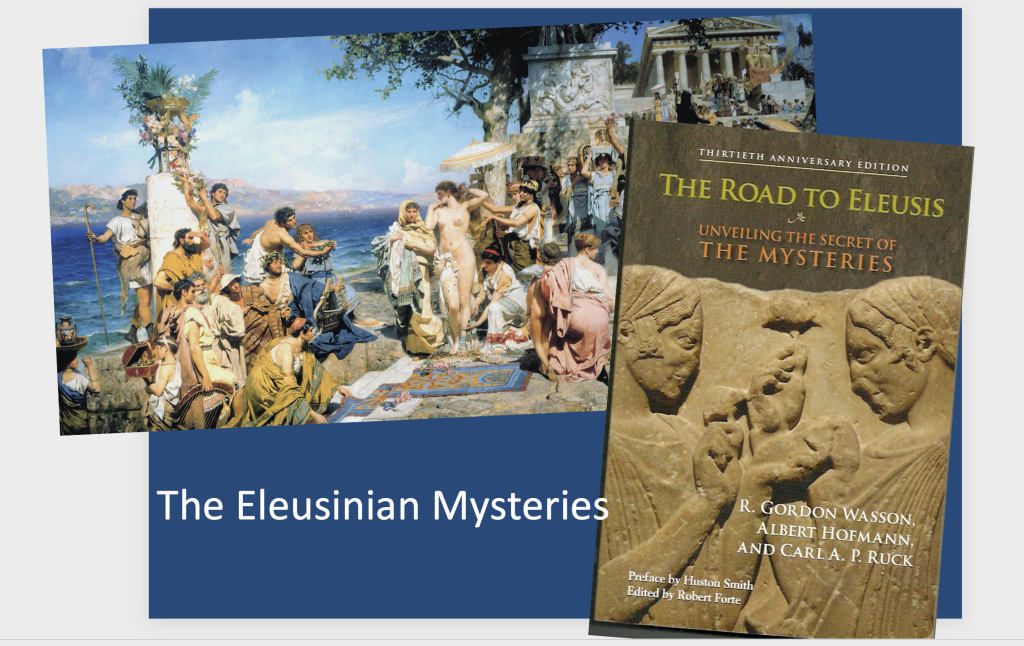
(CC0)
When Graham and Santha returned to our neck of the woods – this time to stay as our guests at the Casita in the backyard, with us as their all-around hosts at the 2015 “Contact in the Desert” event – Graham’s follow up to Fingerprints – Magicians of the Gods – was about to be published.
In his lectures I was thrilled to hear about the newest geological research that his friend Randall Carlson was bringing to light. Graham reported on the cause of the first Younger Dryas event 12,800 years ago where fragments of a massive comet slammed into the Laurentide ice sheet. This cataclysmic episode created the tortured “Scablands” in Washington State, melting so much that sea levels rose as much as 400 feet across the globe, sending the world into a severe ice age. This was followed 1,200 years later by the sudden and catastrophic Meltwater Pulse 1B, which again drowned the planet’s coastlines. Its date was the most important thing about it – 11,600 years in the past. The date Plato had given for the destruction of Atlantis.
Just as critical, the archaeological site, Gobekli Tepe, had been discovered and, with Graham’s help, brought to the public’s attention. The importance of that hunter-gatherer religious complex in southern Turkey could not be overstated in the argument about the chronology of human civilization. And its dating was also, astonishingly, 11,600 years ago.
Graham had similarly brought to light at Contact in the Desert a fascinating theory of the whereabouts of Atlantis in “Sundaland” (Southeast Asia) proposed by author Arysio Santos and researcher Dhani Irwanto. They pointed to the ruins (much of it still covered) of a colossal 22,000-year-old basalt pyramid on the island of Java – Gunung Padang. Since, at this point, I needed to make a decision about where my Atlantos would be located, I decided it would here.
Graham had made an introduction to Randall Carlson, and he graciously took the time to write me a detailed report on what the Pacific Northwest of America would have looked like to one of Poseidon’s and Cleatah’s explorer sons, Gaederus, when he was living there 12,000 years in the past.
Later that year, when Magicians was published, Max and I went to hear Graham speak at his Los Angeles event at The Last Book Store. At dinner afterwards, I found, to my shock and delight, that I was sitting across the table (flanked by his dear friends Graham and Santha) from Whitley Strieber! It was such a hideously noisy restaurant that I doubt I was able to get across to him how influential Communion had been to the telling of my own story. But carrying with me an extra copy of Atlantos – in which he was acknowledged – I placed it into Whitley’s hands. Later he would do me an unasked-for kindness, passing Atlantos (what he called my “beautiful book”) on to a famous Hollywood producer.
“The Graham Hancock Effect” indeed!
The following year I was invited to speak at the 2016 “Contact in the Desert” convention by one of its promotors, Victoria Gevoian. It was my great honor to introduce two of Graham’s events – with thousands clamoring for seats in a standing-room-only hall and extra events having to be scheduled to contain the crowds. I swelled with pride to have my own lecture about lost civilizations and the suppression by academic elites of the true chronology of human history, introduced by the person I considered the “Godfather of Prehistory” himself. In that introduction Graham told my modest crowd that I had done something that publishers universally abhorred – I’d written about Atlantis. It was mind-blowing to have gone from one of Graham’s millions avid readers of Fingerprints of the Gods to his friend and colleague in the space of twenty years.
While Graham went on to write and publish the New York Times bestselling America Before, I was nose-to-the-grindstone trying desperately to finish and self-publish what had finally expanded into the five volumes of The Gods of Atlantos Saga.
I knew that publication of the eBooks and paperbacks would not be complete without a companion audiobook of at least the first volume. So with my dear friends Suzan Crowley, brilliant and award-winning actress of stage, screen and audio…and Emmy and Peabody award-winning producer and sound editor David S. Miller, we independently created the stunning 16-hour Poseidon in Love audiobook.
Aside from 18 seasons of the popular “Ancient Aliens” television series, Cal Tech’s Mike Brown and Konstantin Batygin found scientific evidence of our solar system’s “Planet 9” (in The Gods of Atlantos Saga, the homeworld, Terres). While it hasn’t yet been definitively proven, data is mounting every day for the existence of this giant world far beyond Pluto with its ultra-long elliptical orbit. UFOs (now called UAP) and aliens (grudgingly called “non-human intelligence”) were suddenly accepted as fact by governments and the scientific community. “Disclosure” – with U.S. Congressional and NASA investigations beginning—suddenly took the stigma out of the UFO question. Private researchers, filmmakers, writers and podcasters like Harry Duran, George Knapp and Jeremy Corbell; Bryce Zabel and Ross Coulthart started holding authorities’ feet to the fire to ensure that Disclosure happens. Parallel universes are now studied in physics labs all over the world. Psilocybin mushrooms, DMT and other psychedelic substances are used to treat clinical depression, PTSD and addiction. Evidence of great bodies of water and possible life were found on Mars. Finally, the horrifying breakdown of modern society has brilliantly limned by Umair Haque and Jessica Wildfire on Medium.com.
All the elements of a wild-ass story I began decades ago were becoming real. With my creation of a massive “pitch deck” for a potential feature film trilogy or multi-season limited series, with music from the astonishing composer Luigi Maiello and a brand new website for just these five books, with help from designer Kim Roof, I could suddenly see the bigger picture. All my fascinations and preoccupations, experiences, influences, friendships, teachers, inspirations, interconnections, synchronicities, turning points and game changers all brought me to this moment in my life, this head-spinning moment in civilization’s history.
Just as I was about to publish on Amazon and Audible with spectacular covers by graphic designer Elissa O’Brien. I learned that Graham had narrated his own audiobook “The Definitive Edition of Supernatural,” now entitled Visionary: The Mysterious Origins of Human Consciousness. It included a new introduction and chapters added that had not made it into the print version. I was blown away on many levels (like so many other listeners wrote in their reviews). Of course, he spoke about the role of psychedelics in the evolution of humankind, but what was startling and brought me great joy was how seriously he took “U-fos” (a 2-syllable word) and experiences with interdimensional beings. Perhaps, this was why he had not pushed back against those themes when he’d read and reviewed Atlantos.
Recently I related a dream – really a nightmare – to Graham. In it, I had stupidly handed over a folder containing all of my “Intellectual Property” to a tall, severe-looking female corporate executive. When I demanded that it be given back, I was told “no” and summarily escorted from the building. Graham replied the next day, referring me to a Homeric stanza from the Odyssey about “The gates of horn and ivory.” This literary image is used to distinguish true dreams (corresponding to factual occurrences) from false. The phrase originated in the Greek language, in which the word for “horn” is similar to that for “fulfill” and the word for “ivory” is similar to that for “deceive.” On the basis of that play on words, true dreams are spoken of as coming through the gates of horn, false dreams as coming through those of ivory.
In Graham’s opinion, my nightmare – a classic anxiety dream of handing over to an evil entity what is so precious to me – my lifetime’s body of work – may have left me feeling unsettled, but he believed it came through the gate of ivory, and upon further consideration, I had to agree with him.
But now – with so much violence and turmoil turned against the planet, with the U.S. Democracy turning into a “Demonocracy,” and the imminent collapse of the social order – I am reminded of of Aldous Huxley’s lament, “That people do not learn much from the lessons of history is the most important lesson that history has to teach.” I recall another dream I had some years back when our high desert paradise was under attack by an immense Los Angeles energy company planning to string a hideous power corridor of 300-foot high electrical towers across the top of our beautiful mesas. In the midst of our community’s fight against them, I had a truly terrifying nightmare. The land around our property had become a hellscape with blood-red skies filled with poisonous smoke and hundreds of those towers all around us, strung together with barbed wire.
This, I fear, was a dream coming through the gate of horn. Not unlike my tidal wave dreams. Not unlike my Samurai, machete-wielding aliens, and stake-impaled planet, they are prophetic dreams of what lies in our near future. What happened to Atlantos twelve millennia ago is happening all over again today. If the words of “Thoth’s Prophesy” would come true – “When men would prefer darkness to light, and death will be thought more profitable than life” – we are in serious trouble. It made me wonder if – entertaining as the Saga is – anyone would even want to read it.
But Max – who’s been on this journey with me from the beginning, continuously asked me this question: “Does Atlantos really have to sink?” to which I always replied that it did. Otherwise there was no story. But with enough admonitions begging me to give readers hope, I did revise my ending somewhat, leaving room to describe many of my protagonists’ futures. And suddenly it occurred to me that my survivors of the catastrophe of 11,600 years ago were no less than Graham’s Magicians of the Gods – those survivors of the global flood who sailed out to various continents – North and South America, Egypt, Sumeria – bringing with them memories of an advanced culture, knowledge of agriculture, mathematics, architecture, astronomy, psychedelics. If it happened once – the catastrophic destruction of a civilization and its revival into something even grander – can it happen again? I hope so with all my heart.
In the end, writing The Gods of Atlantos Saga gave my life structure, meaning and a strange kind of closure. So many times over the years, it has saved me from soul-crushing depression because when things got really bad in the outside world, I could go time traveling — “Time Crawling”, as technology-obsessed Atlas Ra calls it — back 12,000 years when Planet Erthe was pristine, and there was nothing but possibility for a glorious future. I got to live vicariously among the “gods who were not gods,” watch the magnificent circular City of Atlantos being constructed and the Great Pyramid being built from the inside out. I rode with Isis and the Thulang horse tribe as they hunted woolly mammoths on the Mongolian Steppes. Even when things in the story started going sideways, I could strive with Poseidon and Cleatah, putting their lives on the line to save the world they loved so much and sending their children sailing off in the middle of the apocalypse to parts unknown to start civilization all over again. So, while I may not have been able to save Atlantos from sinking, perhaps you will be able to immerse yourself in the Saga the way I was able to do. Chris Vogler says this:
“Maxwell has created a fantastic world so thrillingly described that the reader will want to live there for a long, long time…”
I hope you’ll want to live there, too.
To my oldest friend and “American Leonardo,” artist Tom Ellis, I owe a special debt of gratitude for his portraits of the Ra Dynasty — Poseidon, Cleatah, Athens, Isis, Athena, Giza and the “Twins” Atlas and Geo.
Warm and heartfelt thanks to Graham’s and Santha’s kids, who helped me navigate this behemoth of an article. Leila Sarris, editor and researcher, seriously knew her stuff and was endlessly patient and encouraging from stem to stern. Graphic designer and developer Luke Hancock went above and beyond, not only finding all those fabulous images and permissions, but created several original CGI illustrations — “Samurai Aliens!”
– Robin Maxwell, Pioneertown, CA, 2022
Music by Luigi Maiello
Please visit The Gods of Atlantos Saga website: www.RobinMaxwell-GodsOfAtlantos.com
Graham’s moving Youtube video performance of “Thoth’s Prophesy” can be found on the MANIFESTO page.
Purchase Volume I, Poseidon in Love Kindle version for $5.99, and receive Seed of the Gods; Chronicles of Giza; New Gods; and God of Destruction for FREE (limited time – 3 days only, September 7th – 9th). If you miss those dates, the promotion will be repeated, this time for 5 days, September 19th – 23rd). Simply click on the title of the book below, and you’ll see how to purchase or download them for FREE.
All five volumes of the Saga are available on Kindle and in paperback on Amazon.com. Click the links below to explore the 5 volumes.
POSEIDON IN LOVE
SEED OF THE GODS
CHRONICLES OF GIZA
NEW GODS
GOD OF DESTRUCTION
Poseidon in Love is available on Audible.com
Book Raffles
3 Full Sets of Paperbacks of the 5-Book Gods of Atlantos Saga
3 Audible.com audiobooks of Poseidon in Love in the U.K.
3 Audible.com audiobooks of Poseidon in Love in the U.S.
Sign up for my Mailing List on the HOME page of www.RobinMaxwell-GodsOfAtlantos.com to enter these Raffles. Winners will be announced on September 25th.
You can read the first two chapters of Volume I, Poseidon in Love, for FREE on the Amazon.com Kindle page by clicking on the cover art to “Look Inside.”
You can also listen to a 5-minute audio sample by clicking the “Listen” icon beneath the cover.






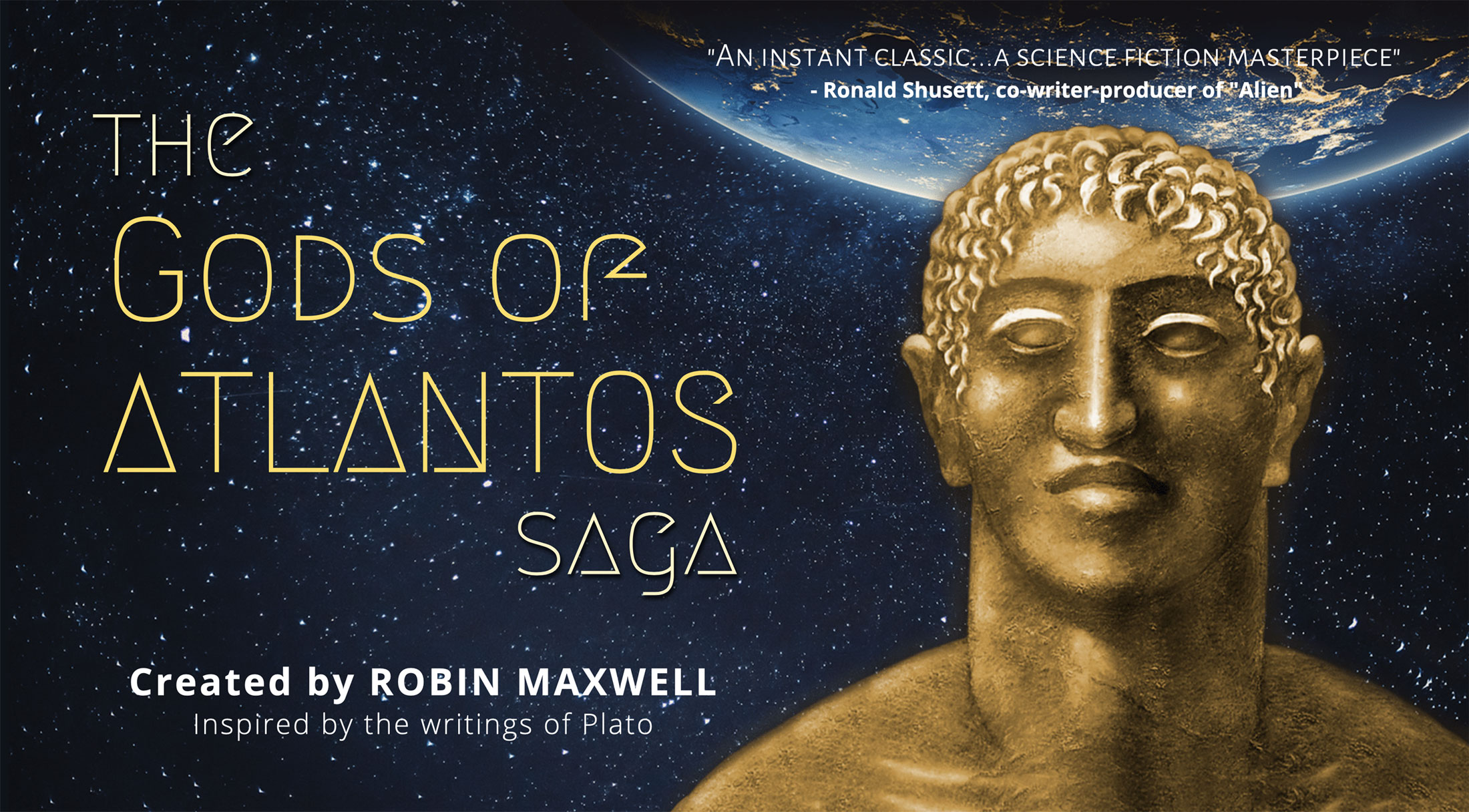

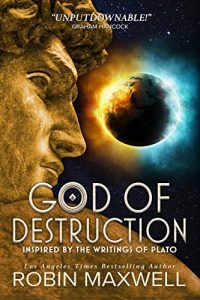


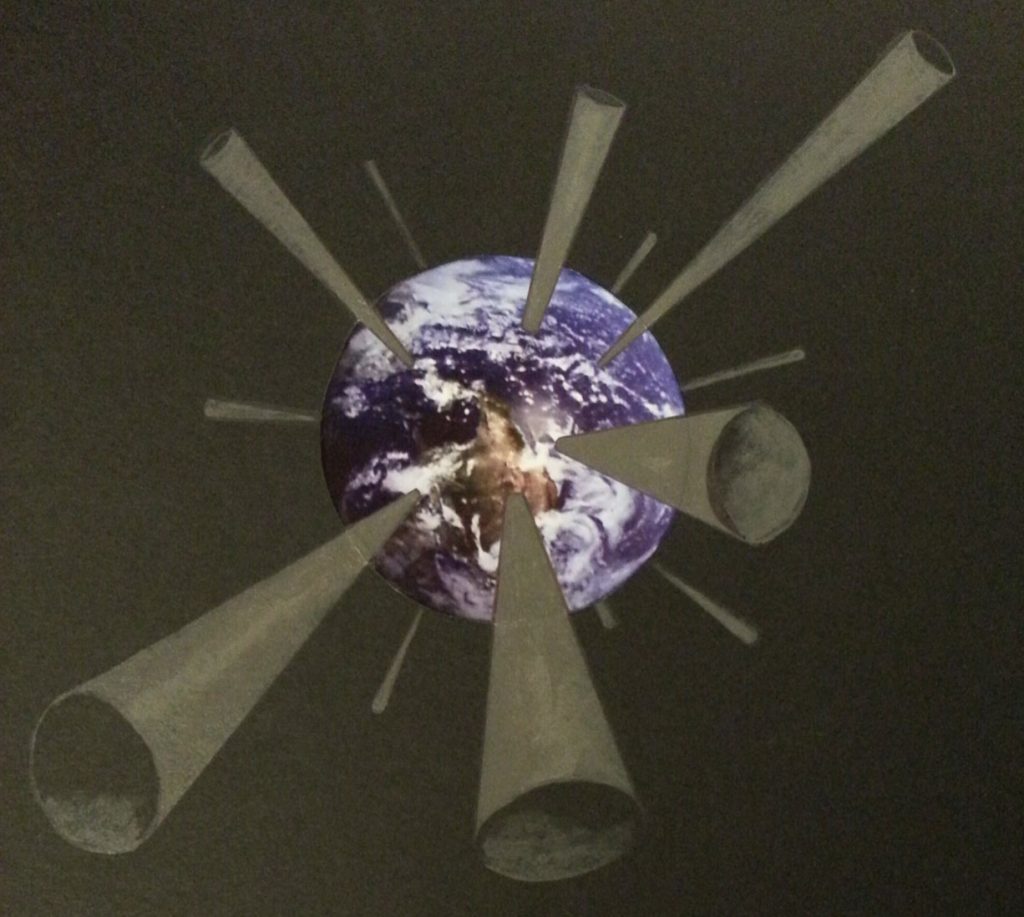


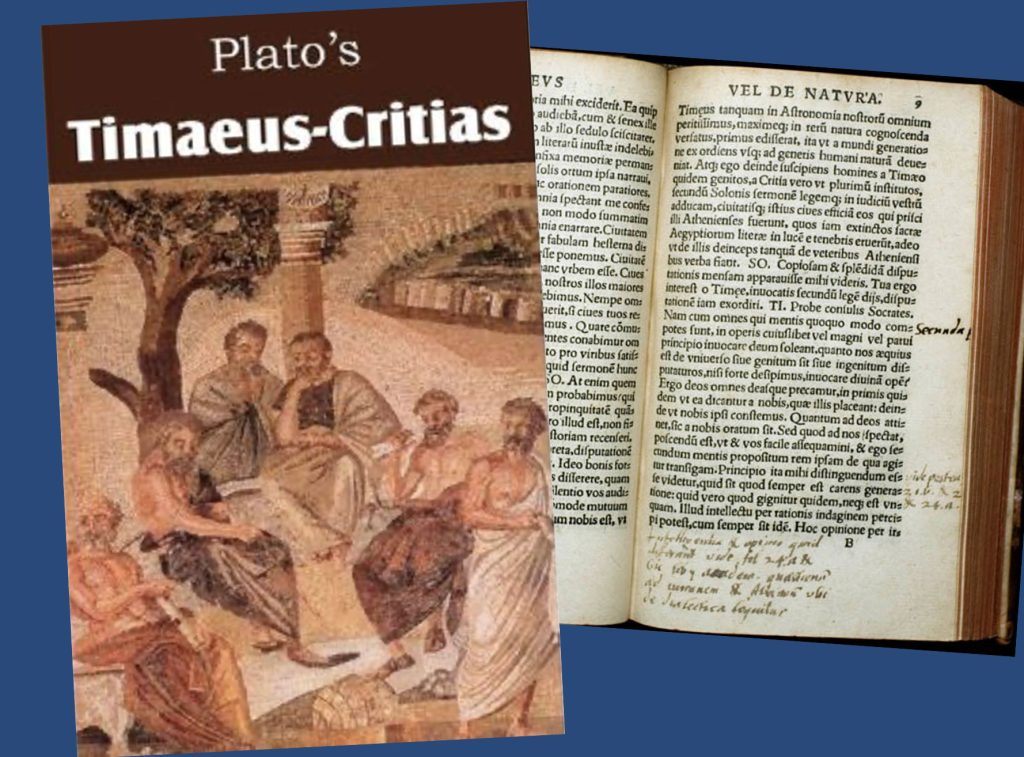




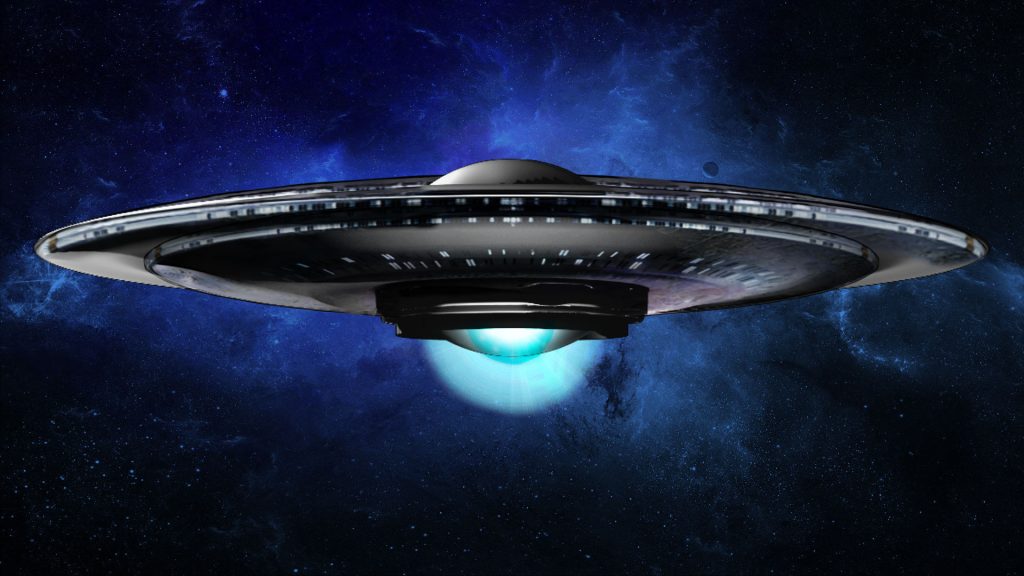


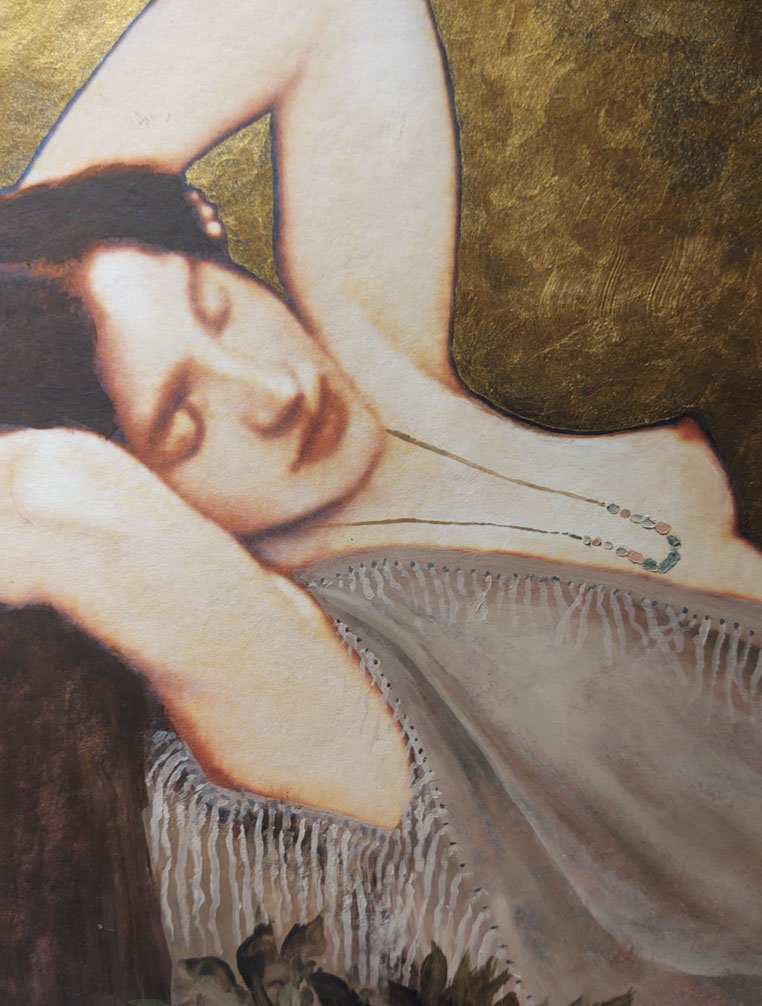


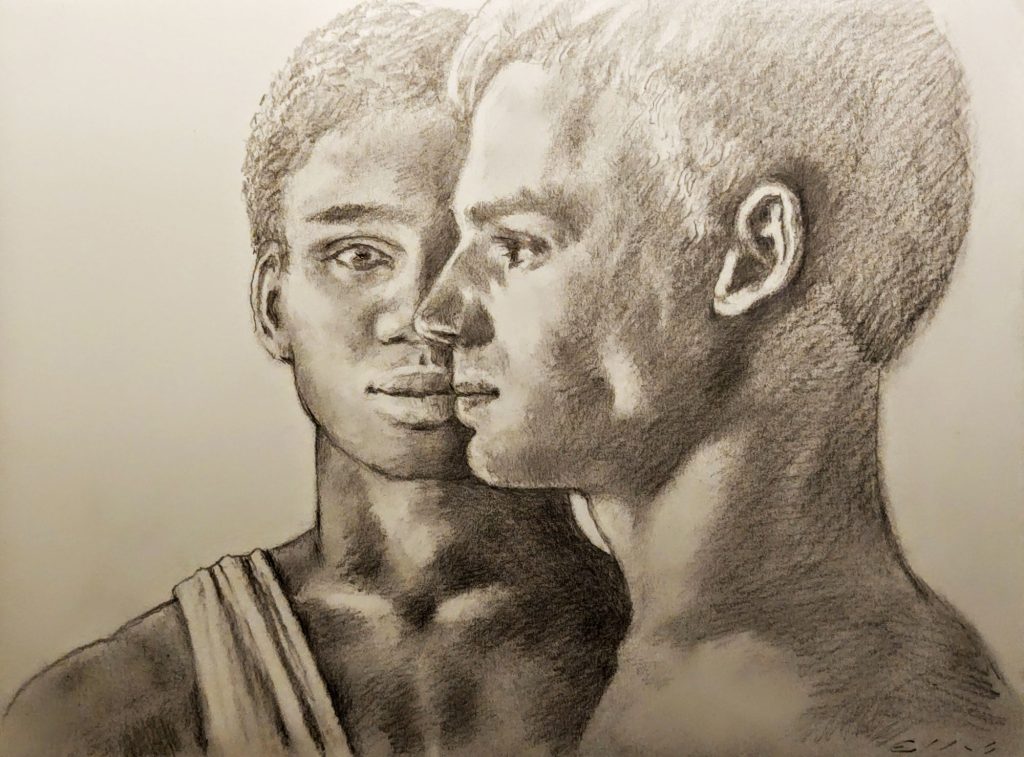

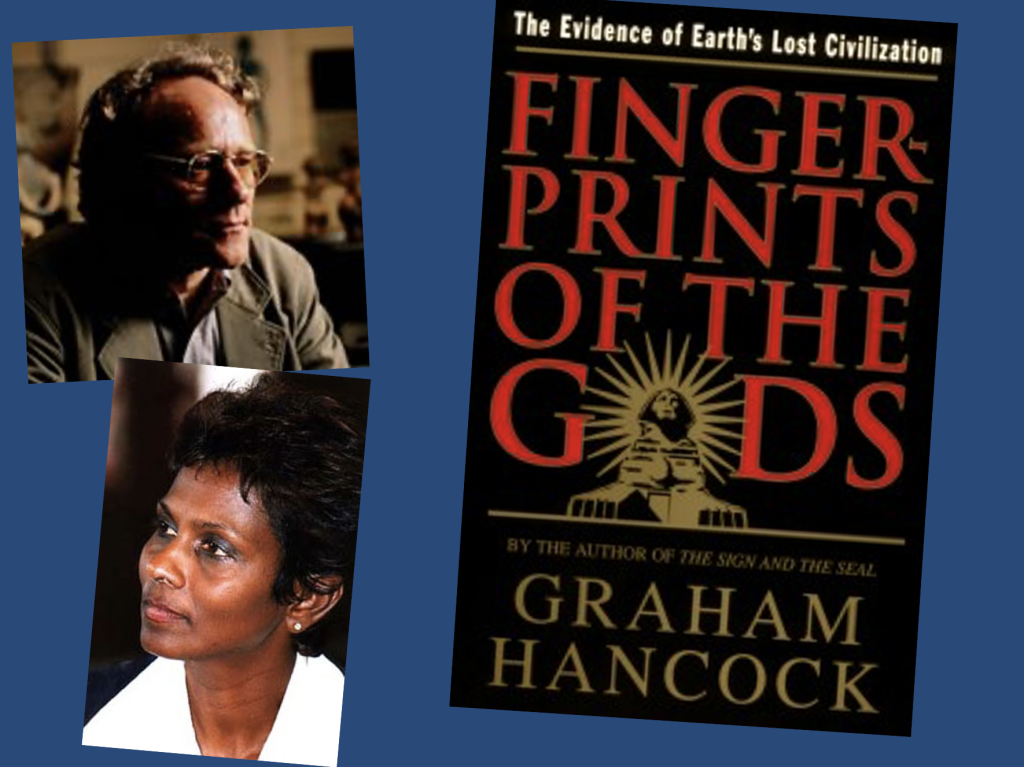
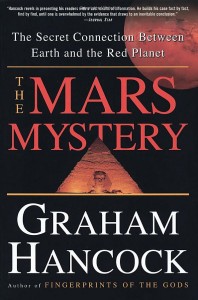
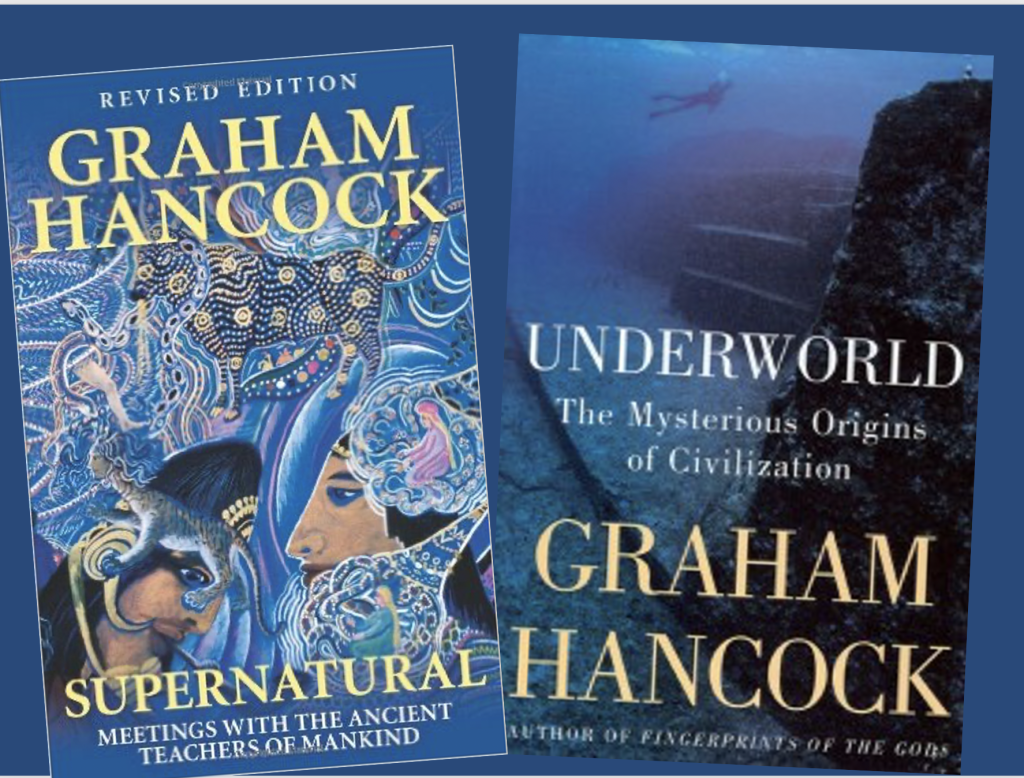
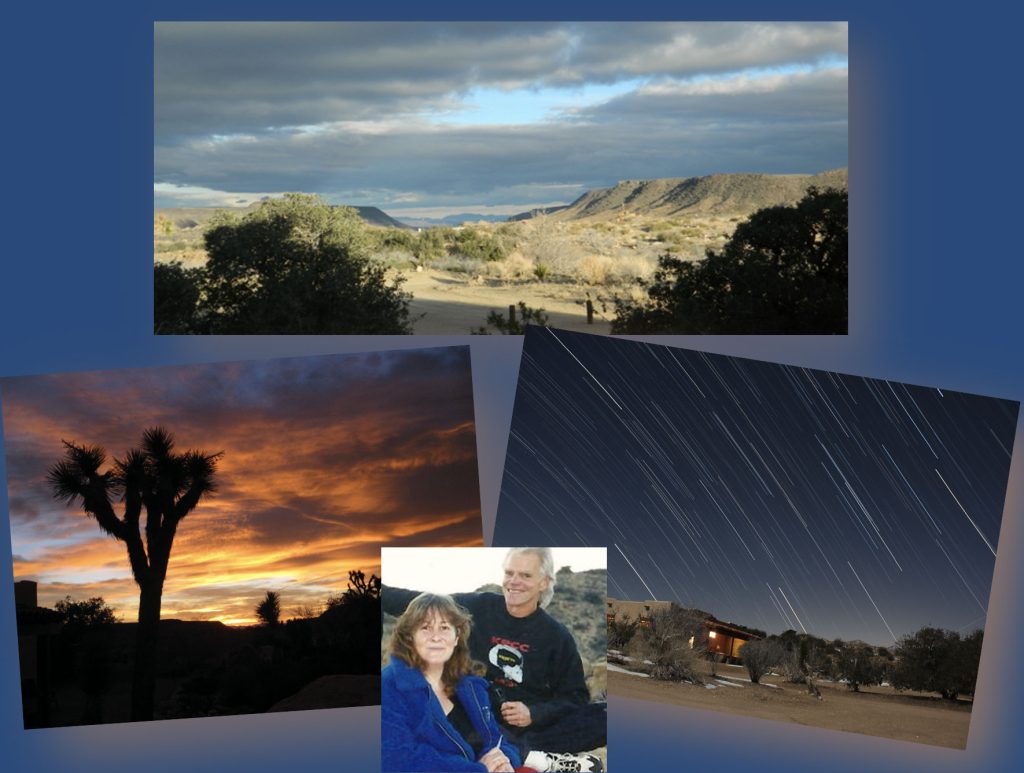

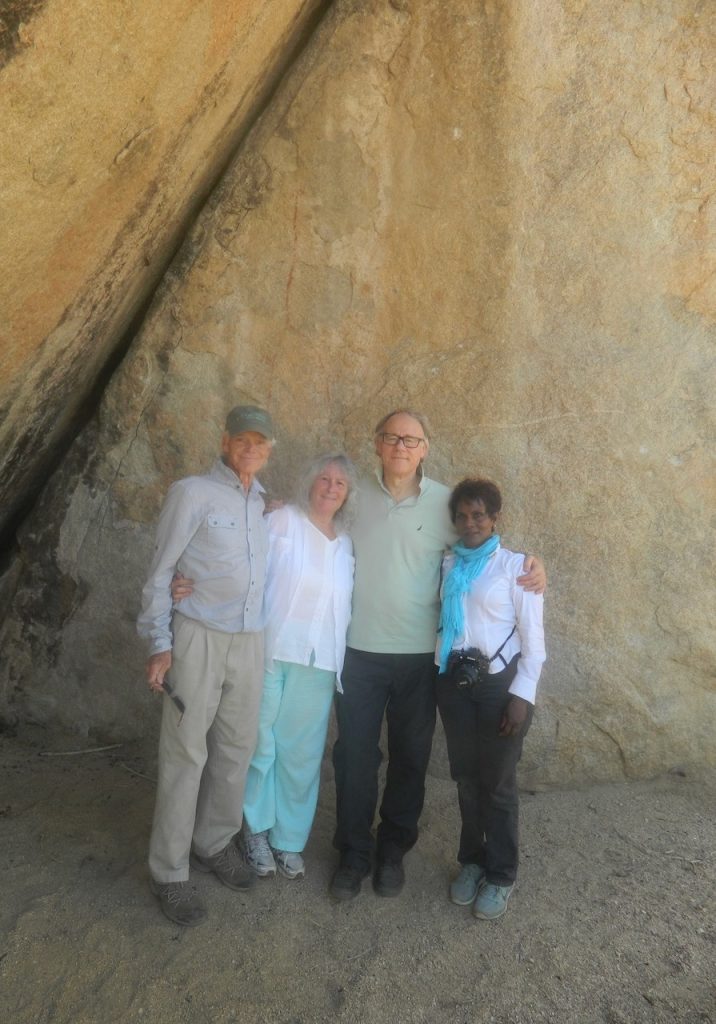
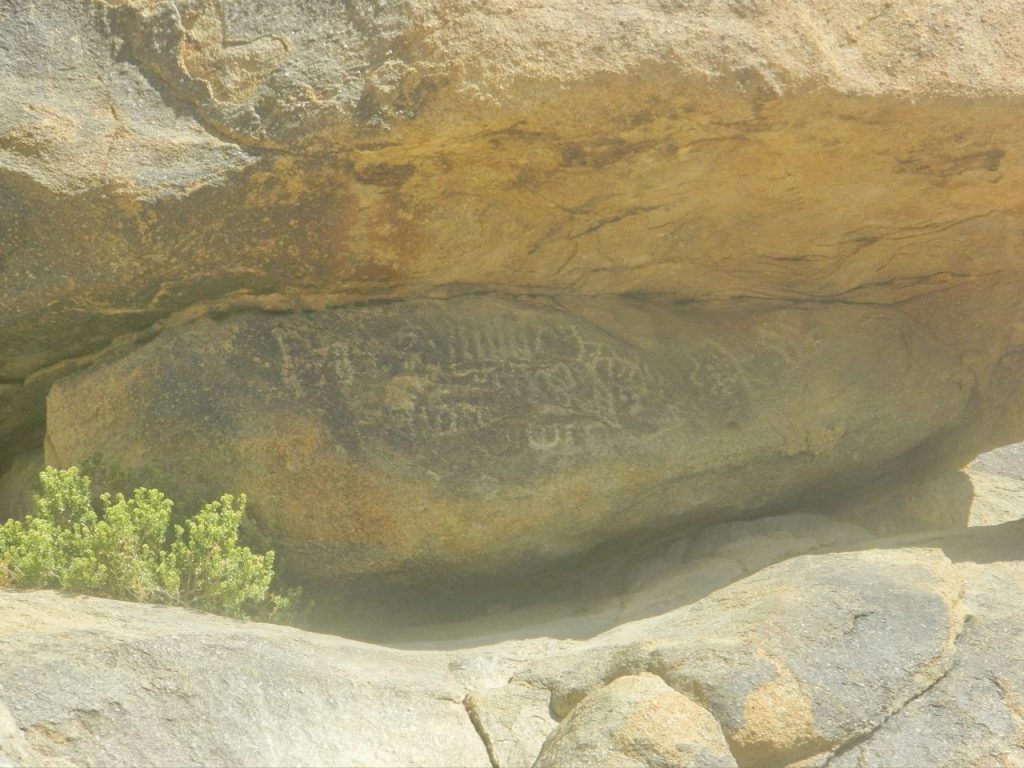








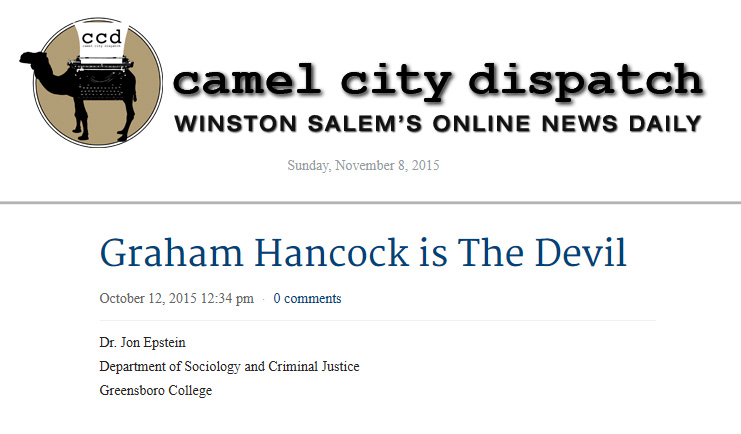
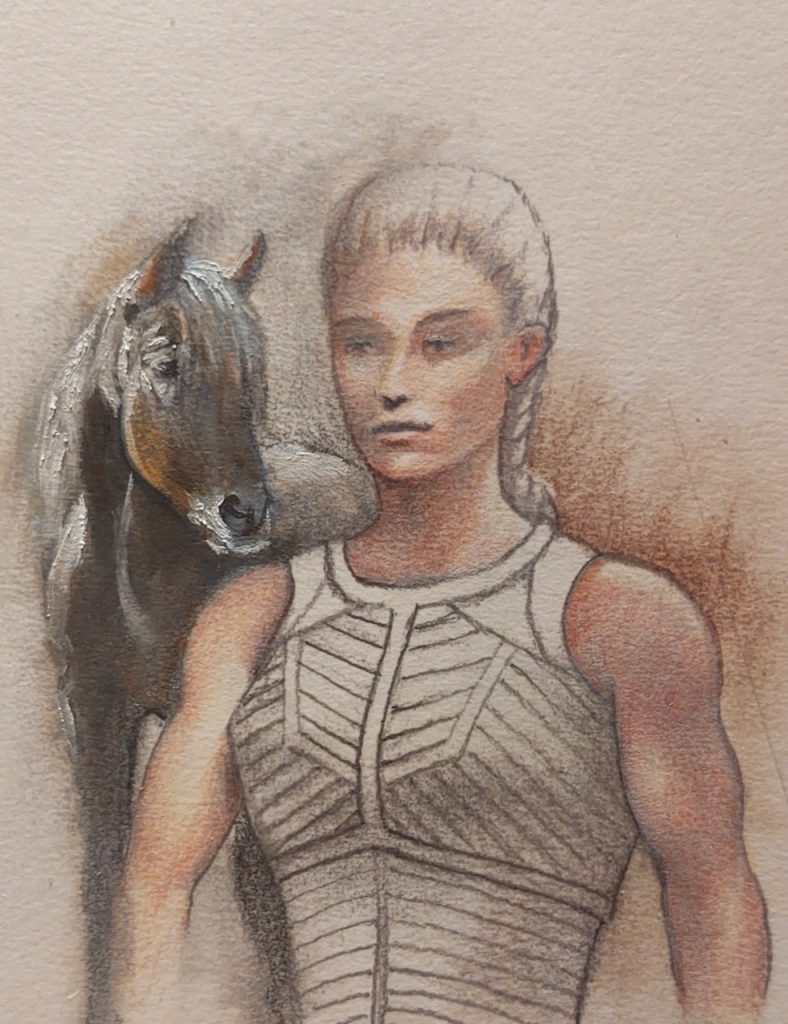
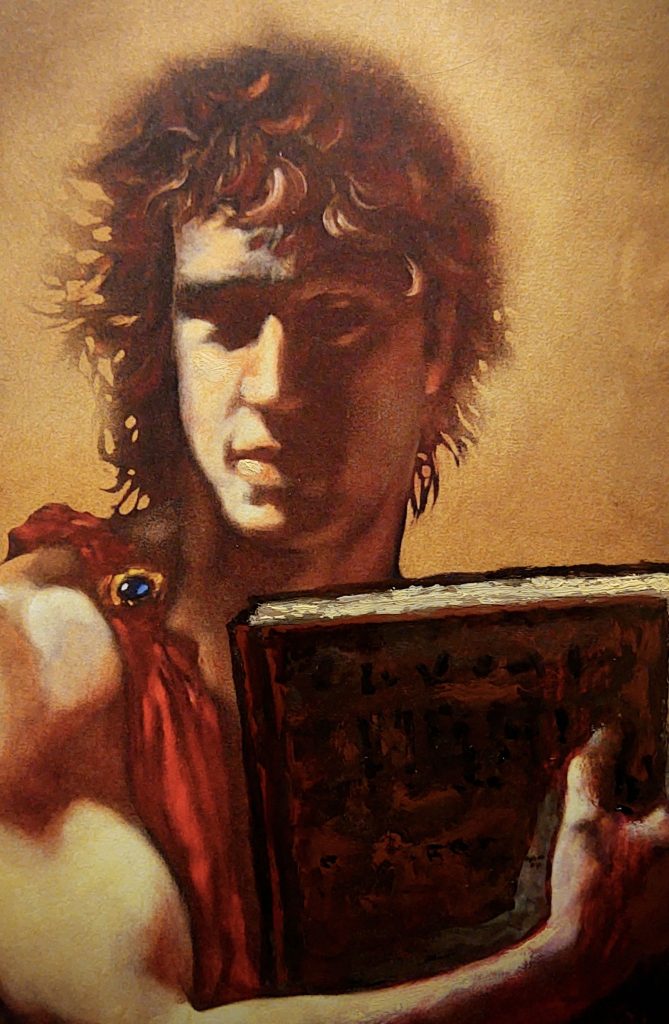

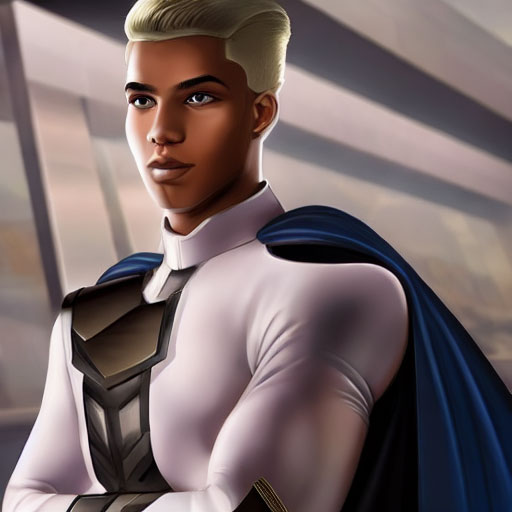


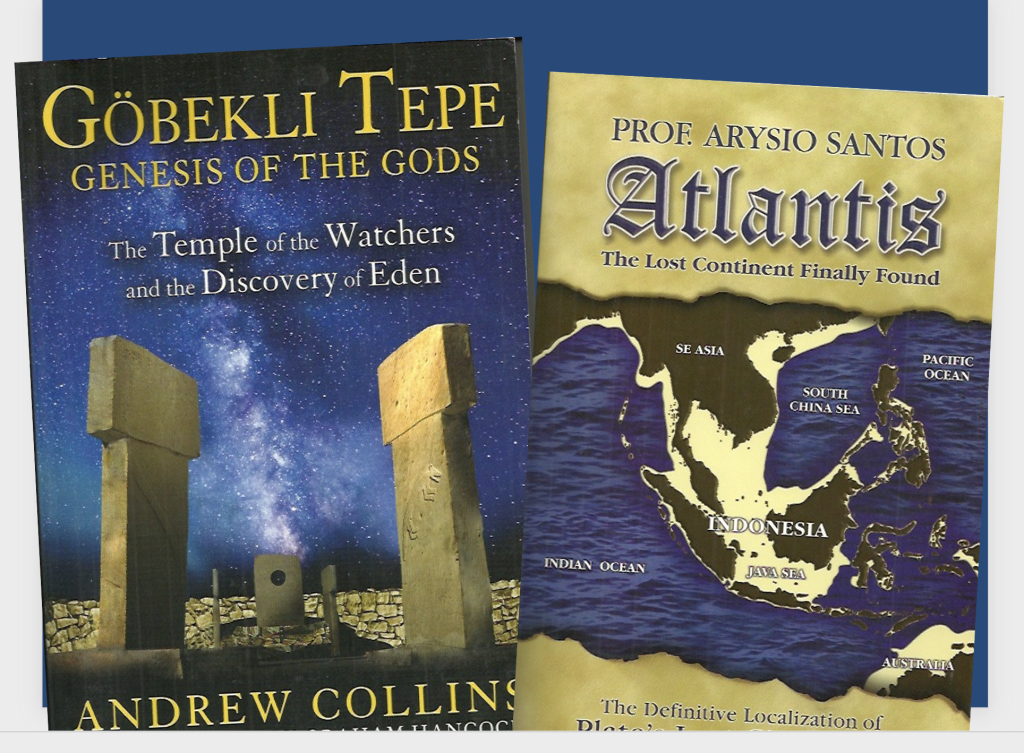
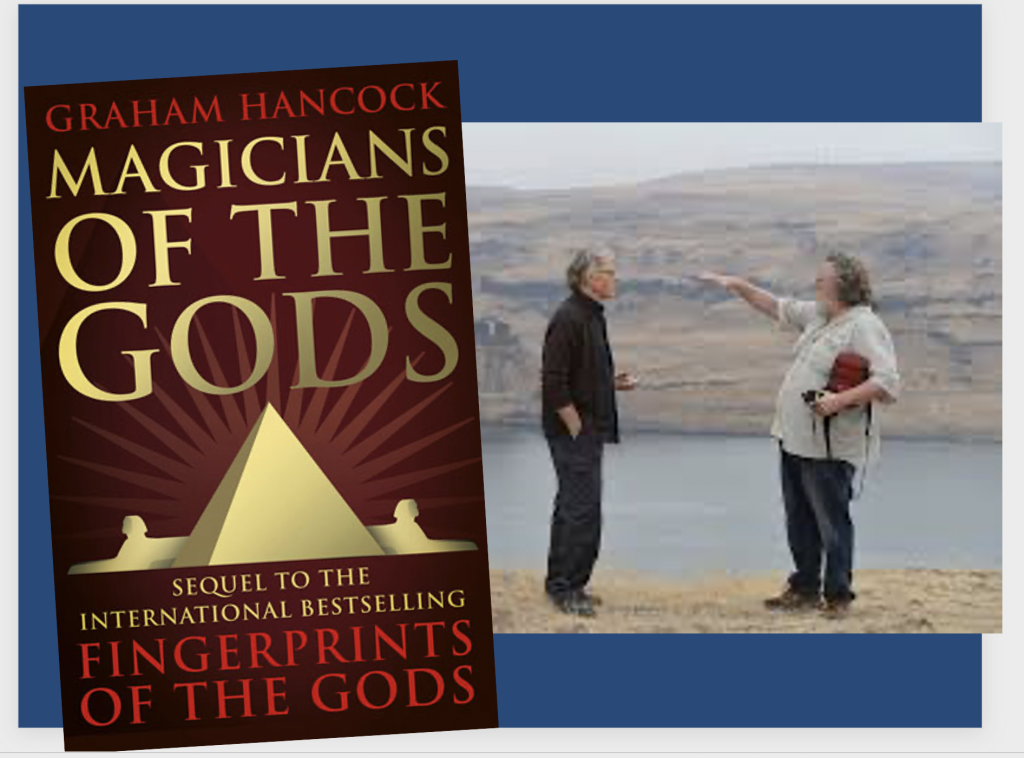
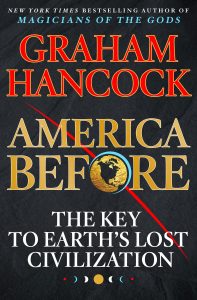
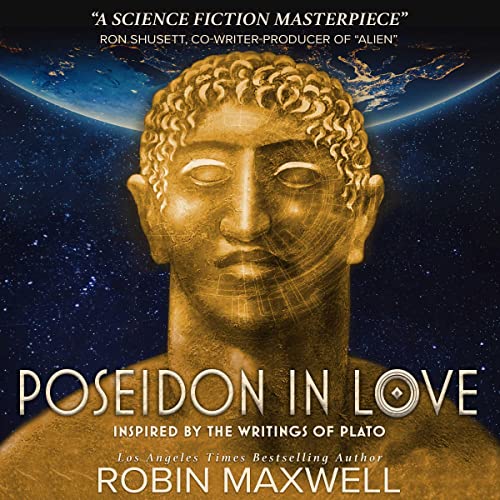
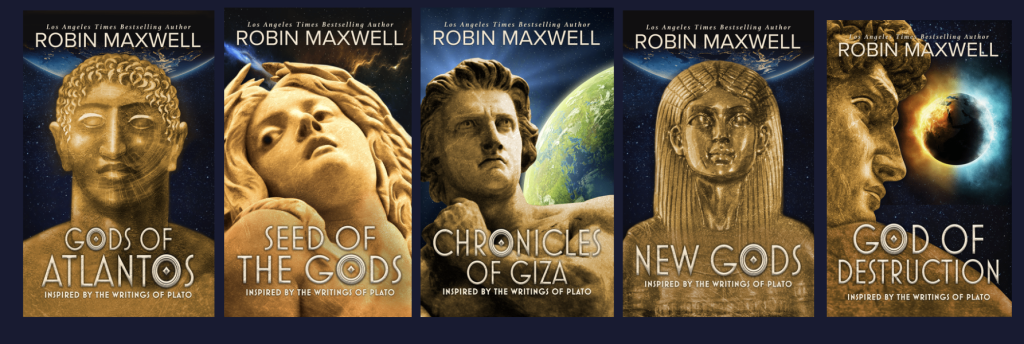
Perhaps fiction should be posted and discussed in another page, or on a parallel site. Readership of pop archaeology, and of archaeo fiction, are probably different, and will probably remain different. Pop science could not detract from novels, but novels do detract and devalue pop science. Different functions. The most extreme example is the Sitchen novels that pretended to be ‘academic’. A milder example of confusion is Jarred Diamon’s Gold, Guns etc, that novelised finge academia.
OK, history is mainly a set of fictions that different polities agree to tell one another differently, but History is still a cultural craft, not yet a science. Most readers know the difference, and historical dramas help to keep a sense of heritage. Except that some tribes have adopted episodes from novels as part of their ethos (there are some USA examples).
Archaeology and anthropology are struggling to become sciences. Popular versions of both still influence even academia (Celts, Druids, evolution mis-applied, etc). The extreme example here is the mythographer Plato, that you again recycle. He wrote, for argument’s sake, that precession was a cycle. There is still no conclusive evidence of that (I discuss this issue in my article about Gobekli Tepe). But all of esoterica, and all of science, and astronomy automation software, accept this assumption, and argue only about the length of the cycle. As if the length of the year were constant, and as if the Newcombe sine curve were right. And as if it mattered. And some pop science populate this ‘cycle’ with ‘civilisations’.
Pop science should hold itself to a higher standard than science, as Graham wrote. And is used by a very well informed readership.
Novels hold to a different standard.
As an experienced author of eight deeply researched historical novels, I’ve learned from my many readers that fiction is more likely to spark interest in their further pursuing history than “straight” history (some of it very dry) will ever do. I’ve been told, “I hated history in school. Your book changed all that. I’m going to keep reading.” My adaptation of Plato’s Atlantis myth (he actually insists that it is the true history of the world), bolstered with decades of research into real (not “pop”) archaeology, astronomy, geology, genetics, physics and psychedelics, makes this “pre-historical science fiction” book series extremely entertaining and therefore serves an important function — bringing more readers into a little known (though heavily ridiculed) period of our civilization’s distant past. Graham — himself a historical novelist — apparently thought my article was appropriately placed on this page.
The gods are real and the Planet X system is real. Planet X is what the chemtrails have hidden every day globally for thirty years. Planet X is a red dwarf star with planets and moons. The red dwarf is what is turning the skies and moon blood red every now and then, When it come close the whole earth will be covered in a coppery color (from the Kolbrin). Planet X caused the sinking of Atlantis and Noahs flood. This time around it will end the coming, planned WW3 that will soon see the USA annihilated by the SCO. It will happen the same day as the next false flag using the nuke the government stole in 2007 and blamed on Iran. All the governments on earth are planning this and more. Thats what the scamdemic and toxic death-shot vaccines are all about. Meanwhile the stupid sheeple carry on with their pathetic, miserable existences while they allow completey evil criminals to run their country into destruction.
Interesting remarks. However, according to Sitchin, Planet X will not return until the year 2900, or somewhere around that time. He substantiated this in the final volume of the Earth Chronicles. Do I understand correctly that you have a different opinion about the time of its return?
Aldert, the original idea for the long elliptical orbit was Sitchin (and to a degree the Dogon orbit of Sirius B around Sirius A). But, writing fiction, I had no need to adhere to Sitchin’s 3,600 years. It worked for me to make it 10,000. And more recently when Cal Tech’s Brown and Batygen “discovered” Planet 9. They claimed the orbit some time around 20,000 years, but by that time it was a little late for my purposes.
It is basically here now. The red dwarf is what turns the moon blood red during every full lunar eclipse now. The liars say it was always red but the is a lie. The moon used to go dark when the shadow hit it, not blood red. Planet X is what is causing the “climate change” and all the lies around that. It is the reason for the scamdemic and toxic death-shot fake vaccine. Planet X is what the chemtrails have been hiding every day globally for thirty years. It will rip the earth apart again 430 days after WW3 destroys the USA. That war will most likely happen October 10, 16 days from now. Planet X is why that war has been planned by the governments of this world and their evil alien masters.
I hope to hell you’re wrong, Renegade Prophet! But we live in dangerous times for sure.
Hi Robin. Fifteen years ago when I learned what was coming, I was hoping I was wrong too. The way things have changed now with so many brainwashed sheeple clinging to every lie on the evil liebox, allowing tyrants to continue to run the country, and everything else, I am now of the opinion that this is about the only cure. I just wish they wouldnt get 90% of us but they are. If you read the Bible and understand that it describes what is happening you will find that it leaves almost nothing out. Read Amos, Ezekiel, Isaiah and Jeremiah. They describe everything except the helicopters and Yellowstone in Revelation. I also found two articles out of Russia stating the there will be “enormous”, “revolutionary changes” to the world before November. Then there is the very direct threat that President Putin made to the west this week. But remember it is all a set up to reduce the worlds population before we realize they planned for most of us to die when PX comes around. This war is the final and most significant distraction for the rest of the world. I bet they even continue to spray the chemtrails here during the war to keep their soldiers from seeing it until its too late. They are planning on most of them dying too and the Bible says that Planet X will kill 5/6 of the 200 million SCO invaders and that will end the war.
Remember this if nothing else: You are not your body.
I forgot this part: In an interview with art bell on a Coast to Coast AM show some 20 years ago, Art asked Sitchin when Planet X would be returning. His reply was “Can we go to the next question please?”
I’m currently reading Jim Marrs book “Alien Agenda” and I just came across the sentence: The greys said a planet is about to make an appearance in our solar system within
the next sixty years and will “wreak havoc here” because “this time this
thing is going to pass on the side of the sun facing us and the sun won’t
be there to protect us.”
And that fits with everything happening now too. All the dots have been connected for those who are watching.
Oh and there is Marshall Masters and the Kolbrin Bible which describes the passing of Planet X in great detail. I once had a brief chat with Marshall on the evil fckzuckshitbook that I no longer participate in. I told him about whats coming in regards to the war before Planet x and his only reply was “Deckchairs on the Titanic.”
Renegade Steve says:
Remember this if nothing else: You are not your body.
My husband told me the exact same thing this morning!
There is other interesting information on this topic. You could see the roads of Atlantis on google maps before they started coloring in all the oceans to keep the sheeple stupid. It is located precisely where Plato said it was. The US government also stole Noah’s ark off Mt. Ararat completely intact then classified it. I have the before and after pics from google maps. The original showing the boat is fairly poor resolution but the after pics are high resolution. They removed it in light snow which left clear tracks and three boat prints. I met Graham at one of his talks in NC and informed him about all of this but I havent seen where he has done anything with the information. At least he is not in the USA for the coming extermination, at least I hope not. It will most likely be October 10, if the day stated four times in the Bible is correct.
I’m as concerned as you are about the prospects of nuclear war right around the corner. And we’re finding out — from the recent Disclosure about UFOs — how deeply our country is involved with coverups. Anything that defies their version of history gets heaps of ridicule. I’m waiting (none-too-patiently) for there to be a “Tic-Tac” moment (the video that blew the lid off UFOs) with Atlantis, the Great Flood, Noah’s Ark (the same story was told in the “Epic of Gilgamesh”) and the true chronology of history.
I am aware of the Sumerian and Akkadian texts. I have read a good deal of them, at least the ones we are allowed to see. The best text for the story about the coming extermination of America is the Bible. Half the book is all about it. The churches focus on Revelation and Daniel and those are probably the two worst books for that story. Ezekiel chapters 1,2 and 8 all perfectly describe modern military jet aircraft. As far as I can tell, that is the only thing Sitchin got wrong in his books, mistaking Ezekiel’s “wheel within a wheel” thing for UFOs. That is actually a wheel within a tire. This war has been planned for centuries by the controllers of this planet and they aren’t now, nor ever have been, humans. Do a search for “albert bourla neck breathing” and watch a couple of those. I don’t know why but I’ve known about this coming war since Aug 2007. I watched a UFO watching me for about 30 min one night sometime around 1977 hovering over a hill a couple hundred yards behind my house. We were way out in the quiet country and it made no sound. It was quite large and a separate light exited the UFO and left in another direction before the UFO slowly floated away. That made me a believer at age 8. My family told me not to tell anyone because they would think I was crazy and they sure were right about that. I didn’t care then and I don’t care now. I cant even begin to tell all the times I’ve been ridiculed for telling everyone about the war. The church crowd is the worst with many of them becoming somewhat hostile. To this day, not one of them has done one ounce of research on their own. “My people perish for lack of knowledge.” I would leave the USA but I don’t know where to go to be safe from Planet X. According to Gordon Michael Scallion’s future map of the world, most of Europe will be underwater. Where I live in Virginia is the only place that I know will be safe from Planet X and I only know that from my own premonitions mostly when I was young. The Bible does say “I will leave a tenth part in her.” That is somewhat encouraging. I will tell you this, pretty much every web site and their commenters are all government, except maybe this one 🙂 Notice the first comment above, discrediting Sitchin. I would bet money that is a government liar. I am the single reason Alex Jones implemented comment registration for making comments. He couldn’t block my posts otherwise. The military has flown an apache over my yard and when I didn’t quit, they flew one 30ft. over my house. All I can say is that I have had an interesting life. I would love to read your books but I’m afraid I don’t have time if the war is this year. The date is in the Bible four times and they all say the tenth day of the tenth month in the ninth year of one of the kings reign. Our senile pervert pretend president cant be there nine years and Putin has been president since May 2012 (the second time). I have seen one news article out of Russian government that states the entire world will change before the November G20 summit and there will be those who want to attend but will not be able to do so. I read some on your page and I am somewhat jealous of your opportunities to meet the people you have. The only one of my “heroes” Ive met is Graham and he was pretty tired when I finally chatted with him while he was signing a book for me. I think Im mostly jealous of not meeting John Lear. I still listen to 20 year old Coast to Coast AM shows with Art Bell. Hearing his interviews with people like Zechariah Sitchin gives new meaning to Art’s “Ghost to Ghost” shows. Now I’m rambling. I think the most important thing we can do in this life is learn to leave our bodies. That is being “born again in the spirit” but the churches won’t tell you that either. The emerald tablets of Thoth tell a little on how to do it but nothing like Robert Monroe, Dr. James Hardt, Robert Bruce, or the many other greats in the field of astral projection and OBEs. I also love the works of Ingo Swann, Cleve Backster, Joe McMoneagle, and the other greats in the field of remote viewing. All of which are in my old C2C AM selections. If we don’t have a war in a month, I will read your latest book. It sounds intriguing. If anyone wants the pics I have of Noah’s ark, I put my real email in these comments, which I almost never do.
What a story you have to tell! I imagine there are lots of other details you didn’t have the space for. That’s why it took me 2,000 pages to tell my mine. But I feel your frustration. I, too, worry that people may not have time to read the books. I just knew it was in my stars to write them, whatever the outcome. I read Ingo Swann and Russell Targ and the early days of remote viewing, and the work that was done in Russia. At a Contact in the Desert event several years ago Targ lectured and I got to hear him. Stay in touch. You can reach me at http://www.RobinMaxwell-GodsOf Atlantos.com.
As someone who has been unable to connect all the dots, I look forward to reading this series. I stood before the Sage Wall in Montana (Montana has megaliths) and understood that I knew nothing about my planet. Bringing imagination to bear on all of the evidence can only be done by a human whose imagination is not confined to what’s proven.
Thank you for your kind words, Mary. Not everyone interested in these subjects are open to the idea of someone fictionalizing history. But the farther back one goes, the fewer facts you have to work with while more extrapolation and imagination is necessary. Even when I write about Anne Boleyn and Elizabeth I still have to delve deep inside their minds and hearts and put words in their mouths. Here I’m attempting it, but 12,000 years in the past. I’m confident that — with Plato’s help and a wide range of scientific research — I’ve put together a great story and characters you can care about, but also something that is close to what really might have happened before the Great Flood. I would love to hear from you at any time in your reading of the books at http://www.robinmaxwell-GodsOfAtlantos.com.
UFOs and state conspiracies? Perhaps this is the wrong page for that. I’m out of here.
“The Sign and the Seal” was my first GH read, given to me by a friend as we worked as COs at a certain detainee prison camp in the Caribbean. I’ve basically read everything Mr. H has written since!
Funny, Anthony. “The Sign and the Seal” is the only one of Graham’s books I haven’t read. He is an incredible supporter of my GODS OF ATLANTOS series, and I hope you’ll listen to his suggestion to give the books — even though they’re fiction — a try. Did you know that Graham is an amazing author of historical fiction himself? I’ve used the research from so many of his books (along with Plato’s) to help me formulate this epic telling of the Atlantis saga. If you sign up for my email list on my website’s HOME page http://www.RobinMaxwell-GodsOfAtlantos you’ll have a chance to win a full set of the 5-paperbacks or an audiobook version of Book I, POSEIDON IN LOVE. And that way, if you do decide to read the books, you can stay in touch with me as you’re reading and tell me what you think.
The source for this is acknowledged by Burroughs himself in Minutes to Go, p. 61: “‘Nothing is true—all is permitted.’ Last words Hassan Sabbah. The Old Man of the Mountain quoted from ‘The Master of the Assassins’ by Betty Bouthoul.”
Barry Miles makes a couple of mistakes on this point in The Beat Hotel.
(1) Miles (slightly mis-) quotes the passage from Minutes to Go and then claims:
Bouthoul does quote Hassan’s last words in her book but these are not the words. The phrase: ‘Nothing is true—everything is permitted’ is the title of Chapter 13 of her book. The suggestions that these were his last words comes from the fact that the line itself is a Cut-up from her book. (Miles, p. 204)
This line is indeed a chapter title in Bouthoul’s book, but Bouthoul does in fact quote this phrase as HiS’s last words elsewhere in her book, and they are not cut-up.
[HiS is on his deathbed, with 3 of his chief lieutenants keeping watch] :
Au milieu de la nuit, Hassan les pria de le laisser seul: “Adieu, dit-il, et souvenez-vous que mon esprit veille. Tant que vous serez dignes de lui, dignes de le comprendre, il vous conseillera…”, et plus bas encore il souffla à Buzurg-Humid: “Souviens-toi…souviens-toi : rien n’est vrai, tout est permis…” A la fin de la nuit Hassan mourut.” (Bouthoul, p. 196).
[In the middle of the night Hassan asked them to leave him alone. “Good bye,” he said, “and remember that my spirit watches. As long as you are worthy of it, worthy of understanding it, it will counsel you…,” and lower still he whispered to Buzurg-Humid, “Remember…remember….nothing is true, everything is permitted.” At the end of the night, Hassan died.]
(2) Miles also claims that the first appearance of HiS in WSB’s work “was in Naked Lunch in the section called ‘Hassan’s Rumpus Room’[…]” (p. 204). But I can’t see any reason for supposing that this “Hassan” is based on Hassan i Sabbah. The Hassan of “Hassan’s Rumpus Room” is, I believe, the character called elsewhere in NL “Salvadaor Hassan O’Leary,” one of the chief liquefactionists. This Hassan’s behavior and characterization bears almost no resemblance to how WSB will later treat HiS. In addition, Bryion Gysin claims that he did not show Bouthoul’s book to WSB until after the publication of NL:
But perhaps the most penetrating book on the real meaning of the mysteries which served the Master in his deadly purposes is a volume in French signed by Betty Bouthoul. The book itself is a mystery and as such I gave it to my good friend William Burroughs, a short time after he had published Naked Lunch. (Gysin, “A quick trip to Alamut,” p. 39
(3) In the endnotes Miles opines that “Burroughs presumably read [Bouthoul’s book] in translation” (p. 291)—but I can find no evidence that Bouthoul’s book has ever been translated into English, or any other language. Either WSB himself read it in French, or perhaps Gysin gave a running translation.
Als die christlichen Kreuzfahrer im Orient auf jenen unbesiegbaren Assassinen-Orden stiessen, jenen Freigeister-Orden par excellence, dessen unterste Grade in einem Gehorsame lebten, wie einen gleichen kein Mönchsorden erreicht hat, da bekamen sie auf irgend welchem Wege auch einen Wink über jenes Symbol und Kerbholz-Wort, das nur den obersten Graden, als deren Secretum, vorbehalten war : “Nichts ist wahr, Alles ist erlaubt”…Wohlan, das war Freiheit des Geistes, damit war der Wahrheit selbst der Glaube gekündigt … Hat wohl je schon ein europäischer, ein christlicher Freigeist sich in diesen Satz und seine labyrinthischen Folgerungen verirrt? kennt er den Minotauros dieser Höhle aus Erfahrung?… Ich zweifle daran [….]
[Nietzsche, Zur Genealogie der Morale. in, Kritische Gesamtausgabe. Hrsg. Colli & Montinari, v. 6:2, p. 417]
When the Christian crusaders in the Orient encountered the invincible order of the Assassins, that order of free spirits par excellence, whose lowest ranks followed a rule of obedience the like of which no order of monks ever attained, they obtained in some way or other a hint concerning that symbol and watchword reserved for the highest ranks alone as their secretum : “Nothing is true, everything is permitted.”—Very well, that was freedom of spirit ; in that way the faith in truth itself was abrogated. Has any European, any Christian free spirit every strayed into this proposition and into its labrynthine consequences? has one of them ever known the Minotaur of this cave from experience?—I doubt it [….]
[Nietzsche, On the genealogy of Morals. Trans. Walter Kaufmann (NY: Vintage Books, 1967): p.150]
[Kaufmann’s note:]
The Assassins’ slogan is often mistaken for Nietzsche’s coinage and derived from Dostoevsky ; e.g., by Danto [in, Nietzsche as philosopher (Macmillan, 1965)] : it “must surely be a paraphrase of the Russian novelist he so admired” (p. 193).
In Dostoevsky’s Brothers Karamazov we encounter the idea that, if mankind lost the belief in God and immortality, “everything would be permitted.” But what matters to Nietzsche in this section is the first half of his quotation, “nothing is true,” which has no parallel in Dostoevsky. [.…]
Incidentally, Nietzsche never read The Brothers [….].
https://my.vanderbilt.edu/jefftaylor/publications/origins/
Thank you so much, Josh, for elucidation on “Nothing is true — all is permitted,” none of which I was aware of in the literary sense, though I believe the idea with all my heart, especially when it comes to reading others’ research and my writing fiction. I may have said this before in one of the comments sections, but the almost universally accepted “Big Bang Theory” has just been “disproved” by the James Webb Telescope that has seen past what astronomer’s believed was the beginning point of the universe…and found many, many galaxies beyond it. This discovery may in the future itself be disproved. It is all about the human need to hold fast to religious and other “beliefs” which — as American philosophers Joel Kramer and Diana Alstad wrote so brilliantly about in “The Guru Papers” https://amzn.to/3AV28lx — is the bane of our species existence.
WOW! Holy Maxwell, Robin! Wonder of Wonders!
I can’t wait to read your quintet. Your openess about your struggle to write & publish your ‘channelled’ opus on Atlantos was refreshing. I see parallels to the life novel of someone very close to me, who I call a sort of educated Forest Gump. I can identify with your peregrinations, both internal, external & literal.
You may know about James Joyce improving on one of old grumpy Schoenauer’s concepts, or you may not: Jimmyjays said that if you lived long enough, and retained your wits, and then looked back on your life, thinking for the most part, that it was a wild and crazy (perhaps if it was like mine) series of meaningless, random events, you might perhaps have the sudden(or semi or unsudden) realization that your life is actually neither meaningless nor random, but a finely crafted and fully charactered novel(or quintet, lol) and you, my dear Robin, are the chief protagonist.
And that realization may come perhaps from the sudden flash of wisdom you attained from your lifetime of acquiring knowledge of all sorts, and making various stews and smorgasbords out of it from inner compulsions you seemed helpless to ignore.
Welcome to the liminal of your personal creative compulsions. It zounds like, egad, Ms. Maxwell, that you are a fine example of this Jimmyjoy twist on glum and grimm Schopenauer’s Earthbound assemblage.
It seems that the phrase mentioned in the previous comments: “All is True and Everything is permitted”, is an alternate paraphrase on Crowley’s “Do what thou wilt is the whole of the Law”, and if not, is close enough for a cheap shave. A codex rather than a pox on it, for those who have attained some iota of wisdom, is to utilize said wisdom, the non-random target goal of data digesting, and insert the word ‘appropriate’ in its proper position in both those statements, as even though it puts a governor on wanton willfulness, it is the most benevolent use of power, when once you realize you wield it.
Jane Roberts’ personality amanuensis, Seth, put it that:
“We live in a safe uni(-)verse.”
& some years later on, clarified that with:
“I said we live in a safe Universe, but I never said it was perfect.” ,
implying that yes, there are tricky intricacies, and that perfection is a sort of entrophic dead end in a Multi-Uni-Verse of ongoing becomingness that makes our witty truisms pale in its eternal infinitesimalism. I stand paled.
And thank you, as right now I am dire need of a good, fecking quint-essential series of well-written prose that will entertain and tickle my own amanuensis’ funnybone of thirsty wisdom. Your series appears to do just the trick. I will now go off and seek out a local bookstore for your Opus Seannchas ficsean, in a mood of well-needed anticipation.
Had another crazy day, Seamus. Will you please write to me via my website email [email protected] ?
Jimmyjays said that if you lived long enough, and retained your wits, and then looked back on your life, thinking for the most part, that it was a wild and crazy (perhaps if it was like mine) series of meaningless, random events, you might perhaps have the sudden(or semi or unsudden) realization that your life is actually neither meaningless nor random, but a finely crafted and fully charactered novel(or quintet, lol) and you, my dear Robin, are the chief protagonist.
Yes, Seamus, after looking back over 70 years and all the events, teachers and teachings that either I’ve been drawn to or I’ve drawn to myself it’s difficult to see them as random. And I haven’t even begun discussing (word) synchronicity — that is the one thing in my life that convinces me that I am just across a thin membrane between universes (as I write about in GODS OF ATLANTOS). When it happens 3 times in 5 minutes (as it has in the last few days) I don’t know whether to be creeped out or thrilled. The “other” is all around us, and I’m desperate to know as much as I can about it.
Seamus, are you able to purchase the books on Amazon?